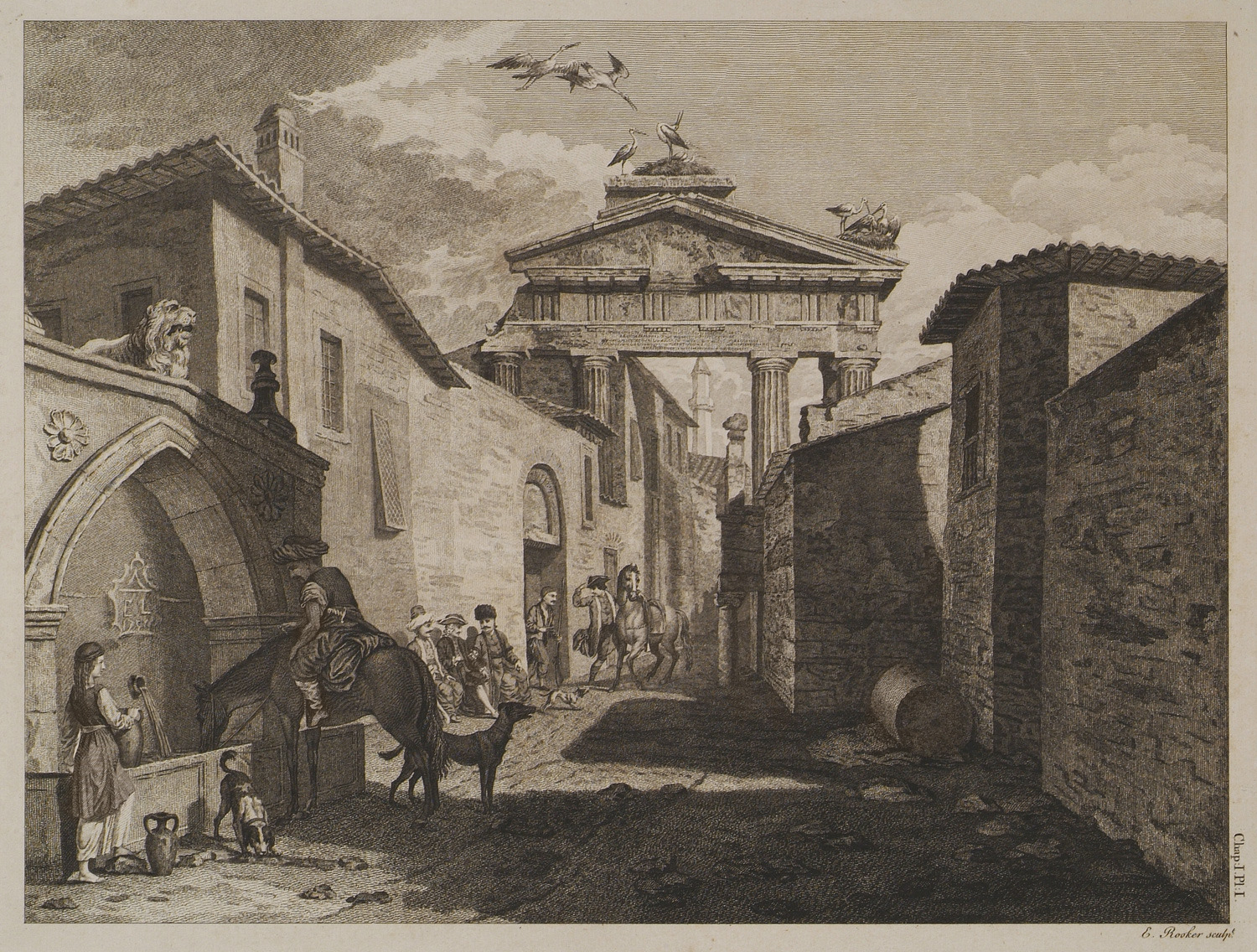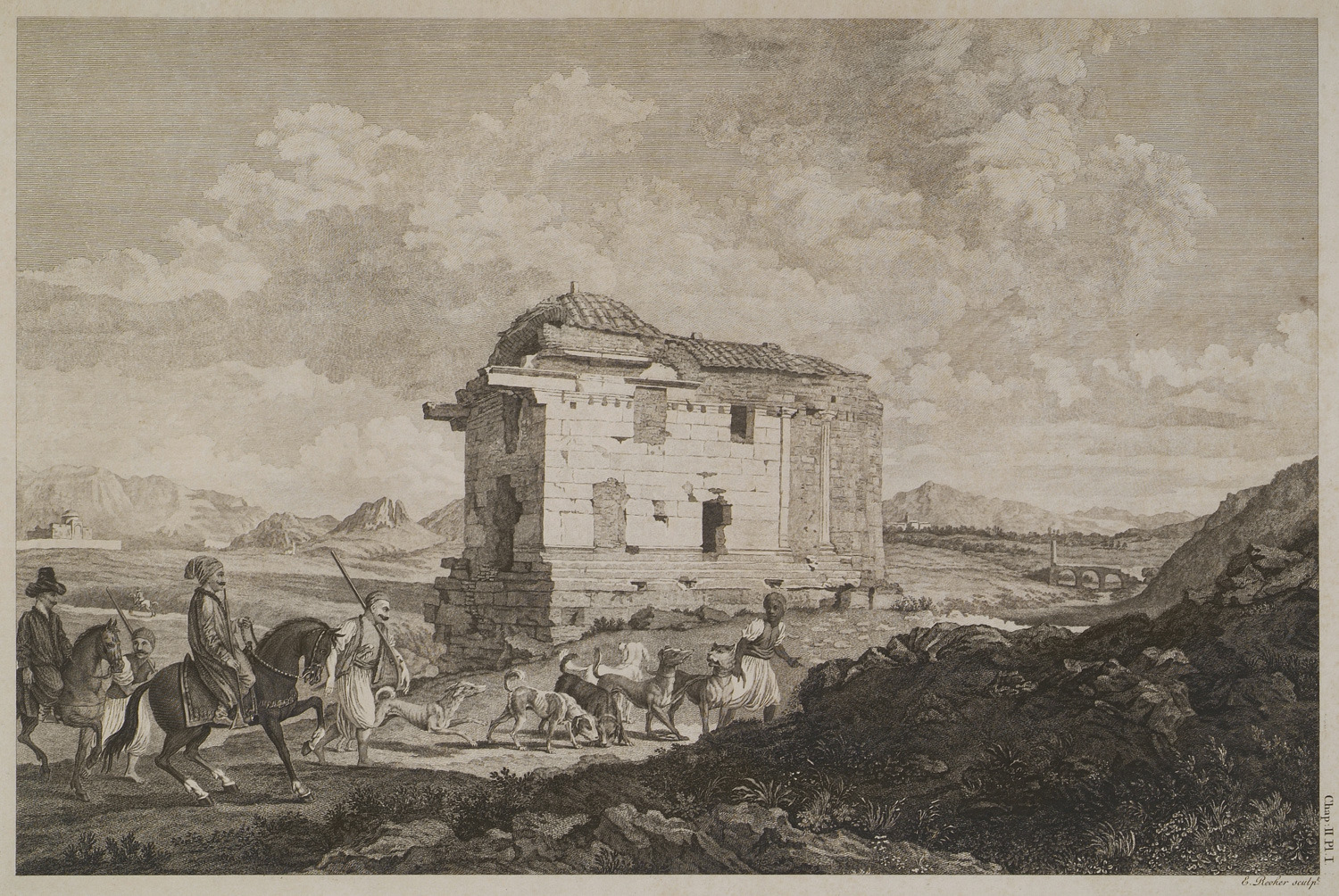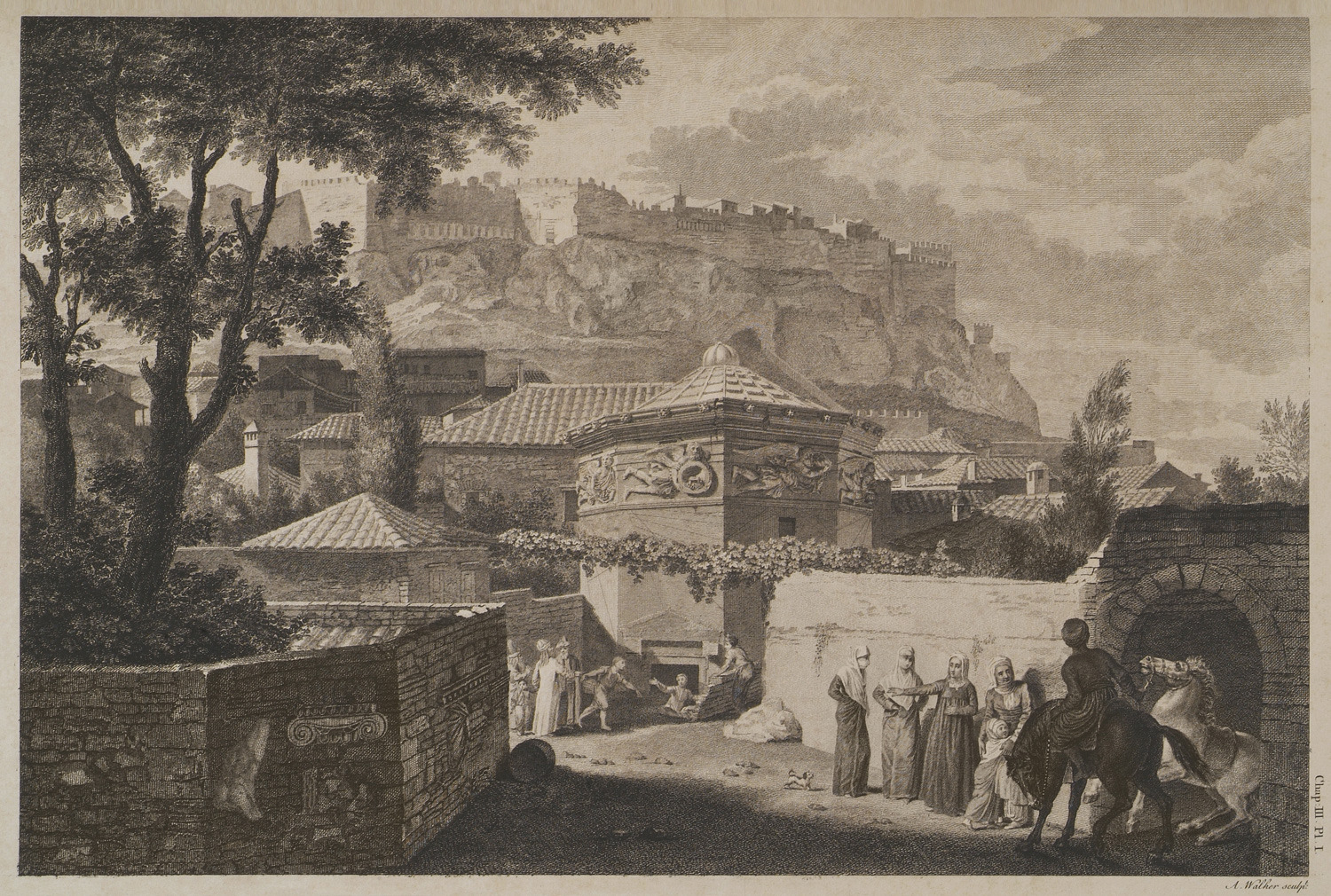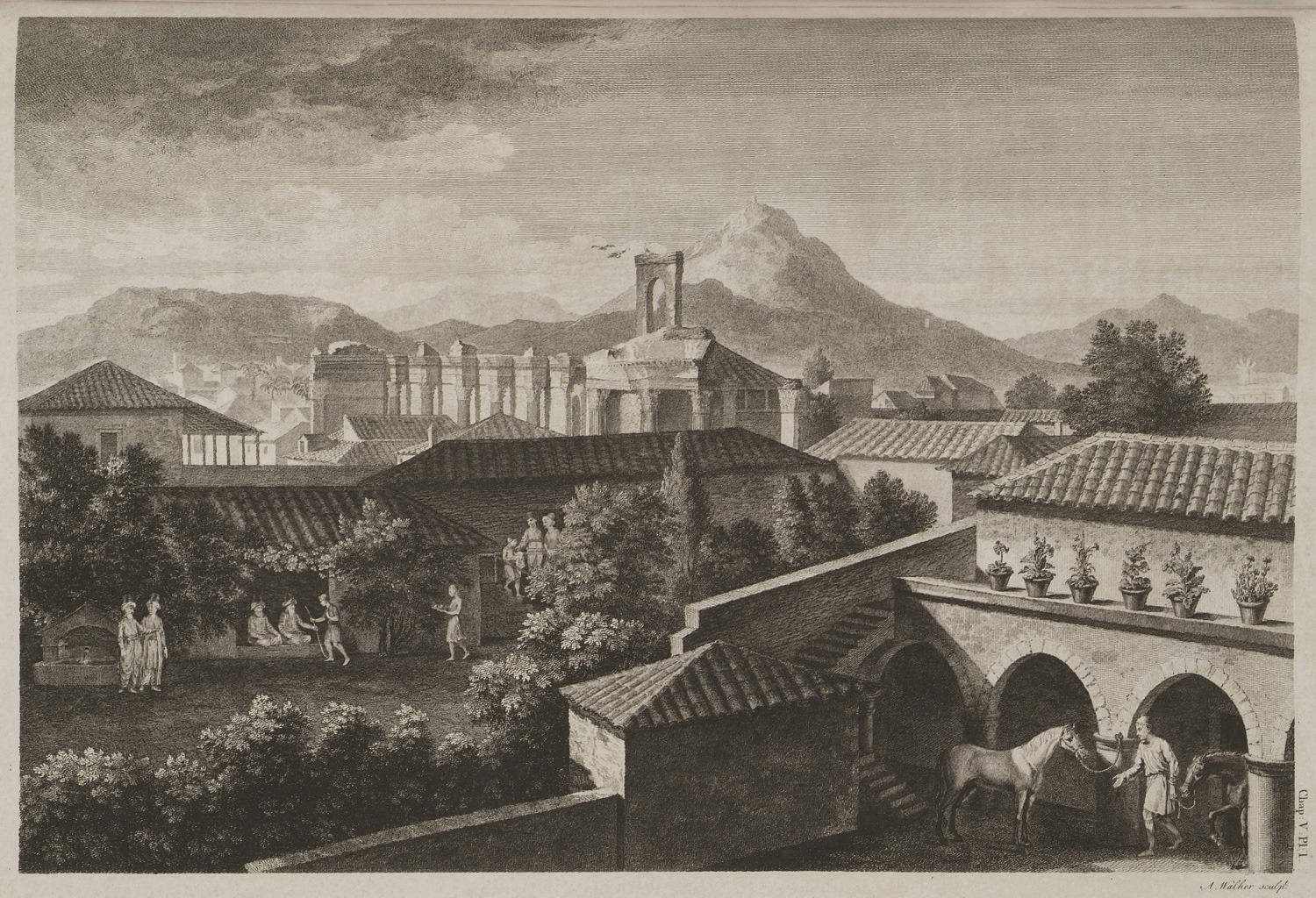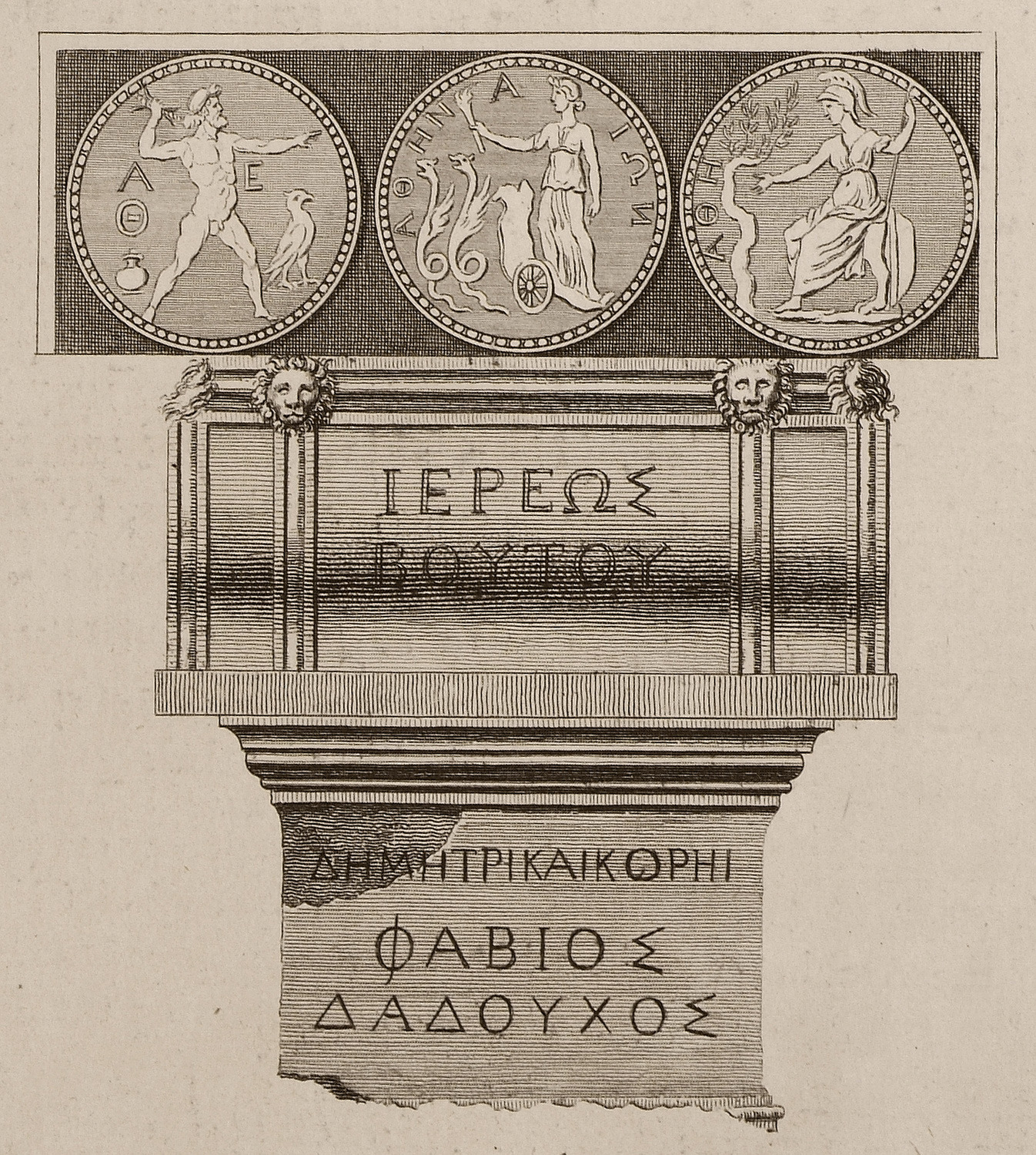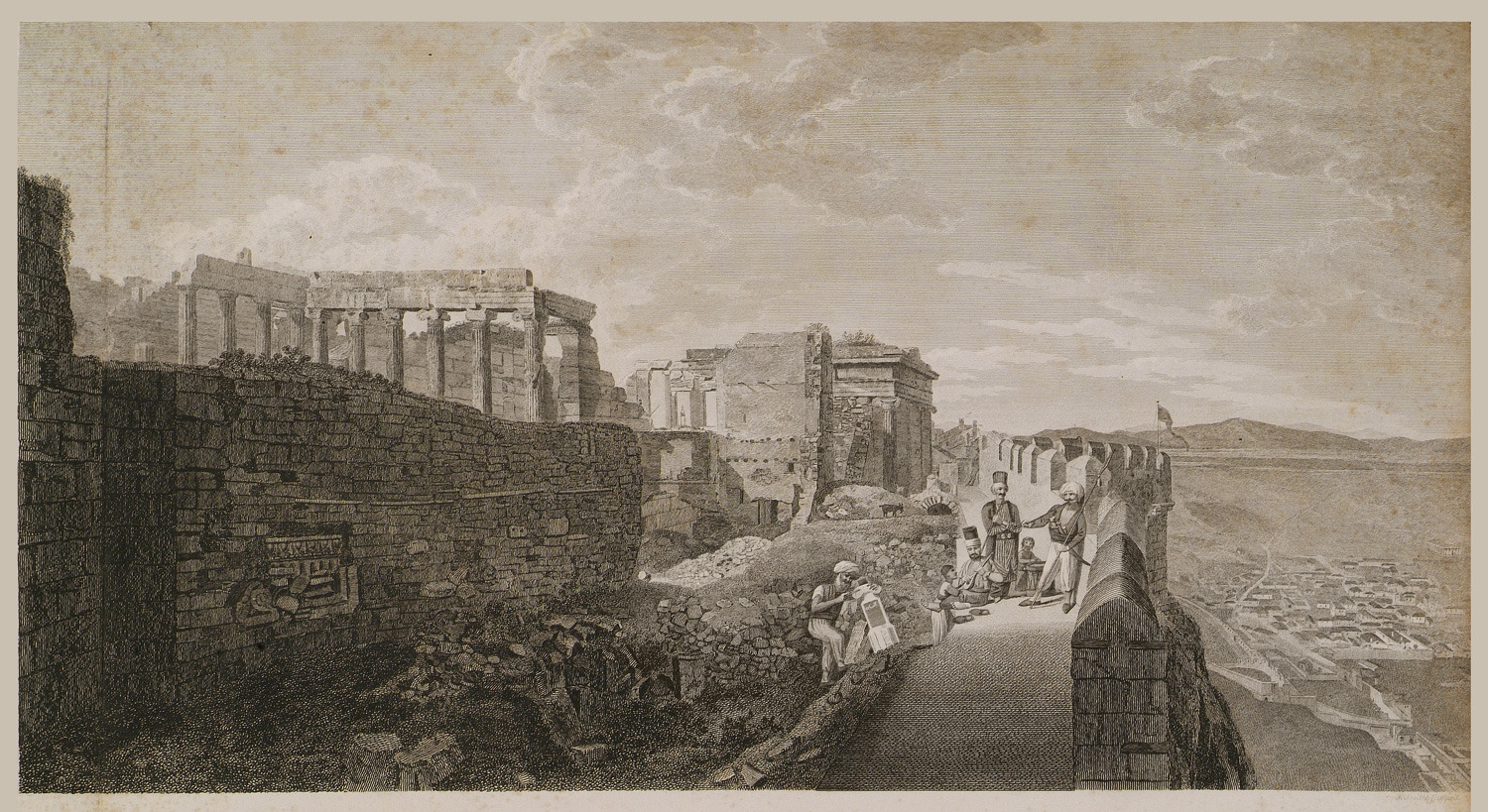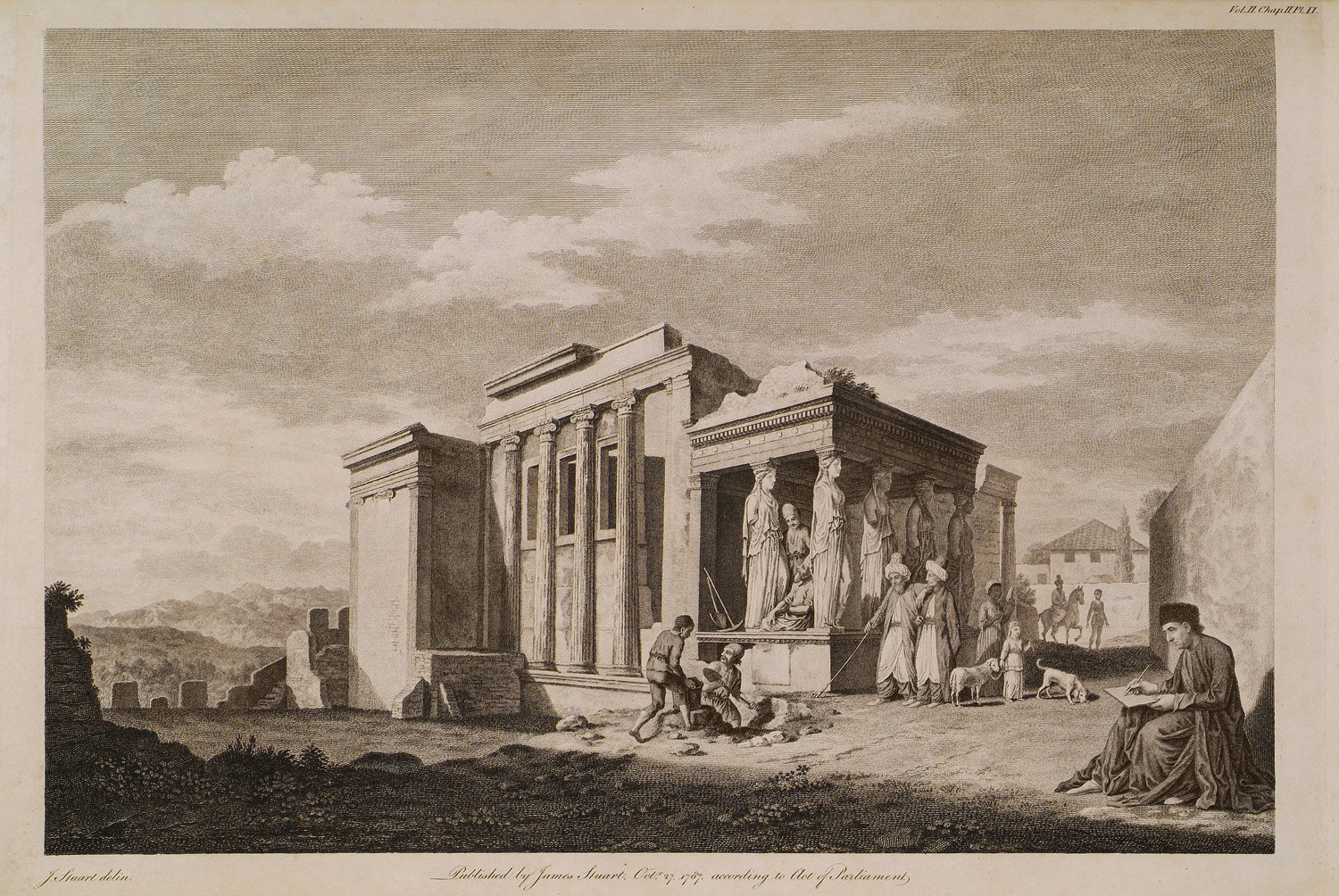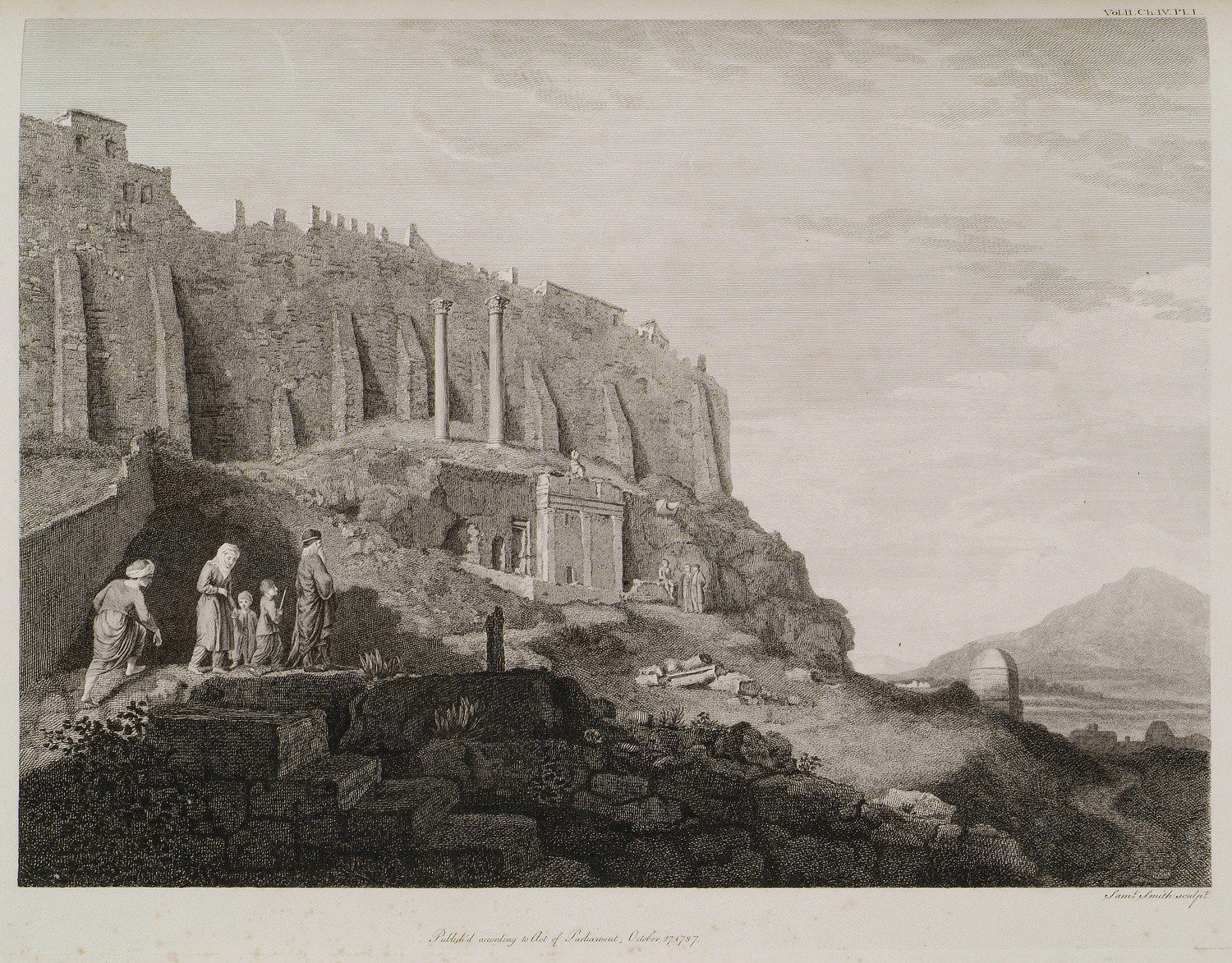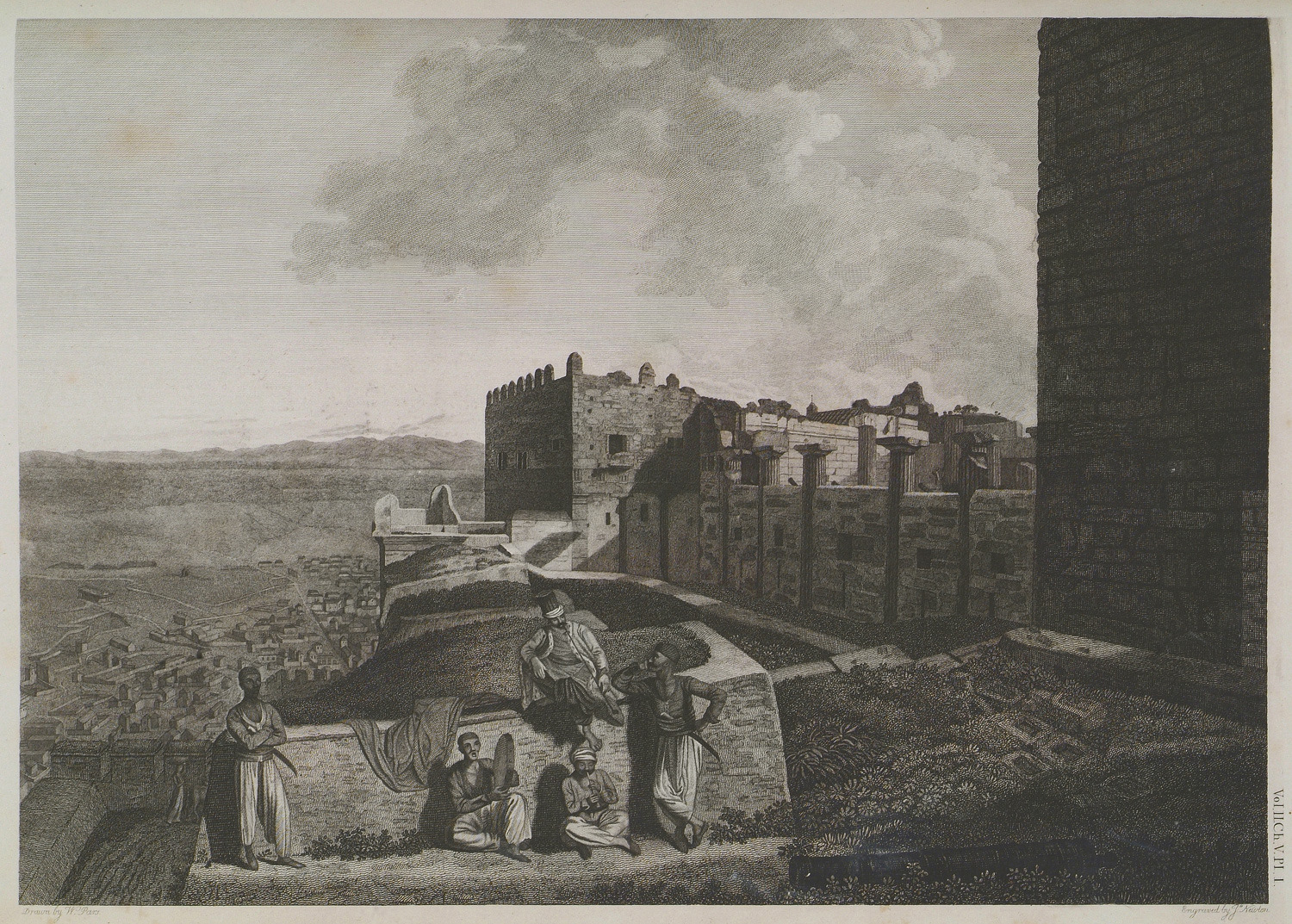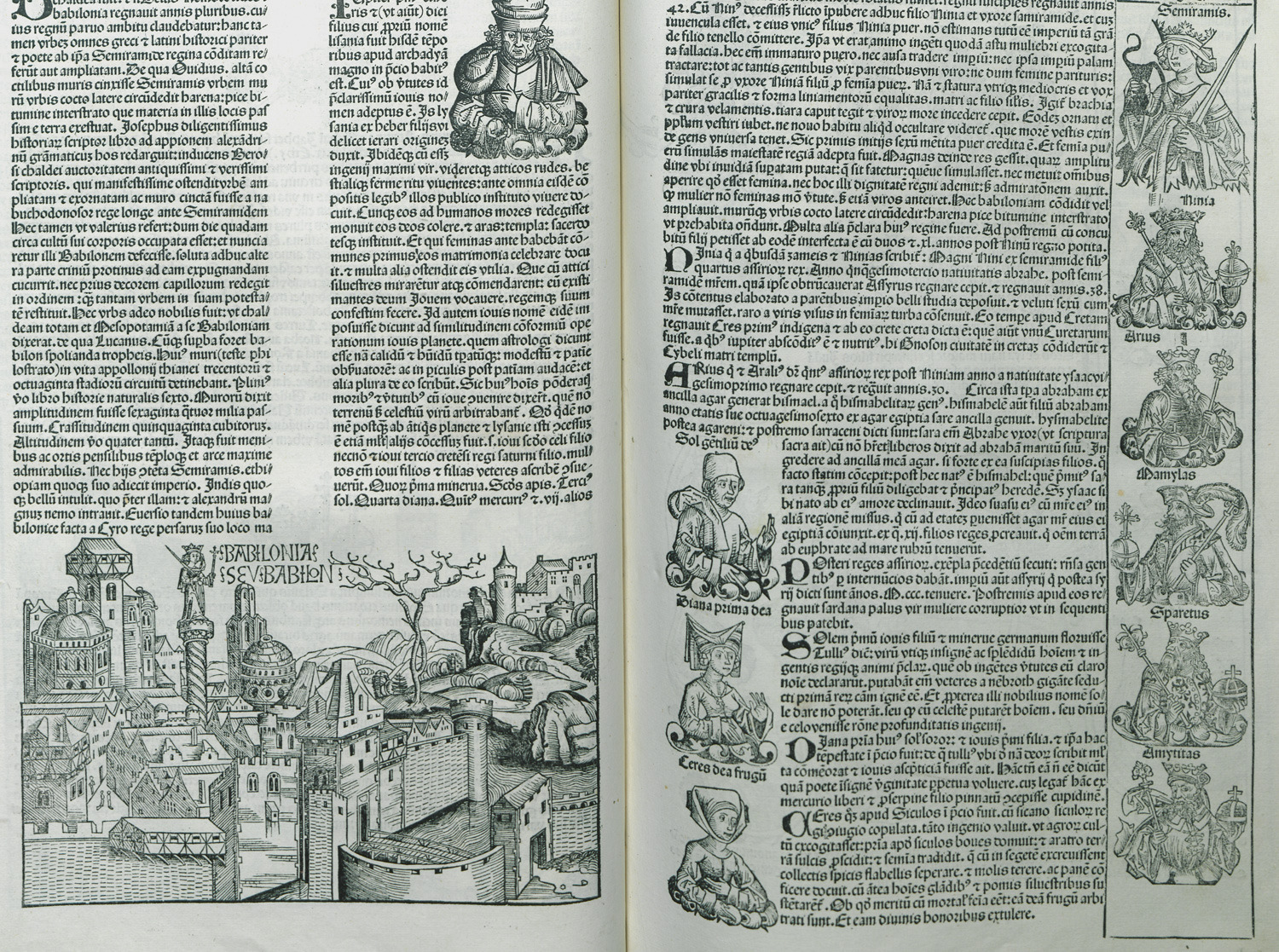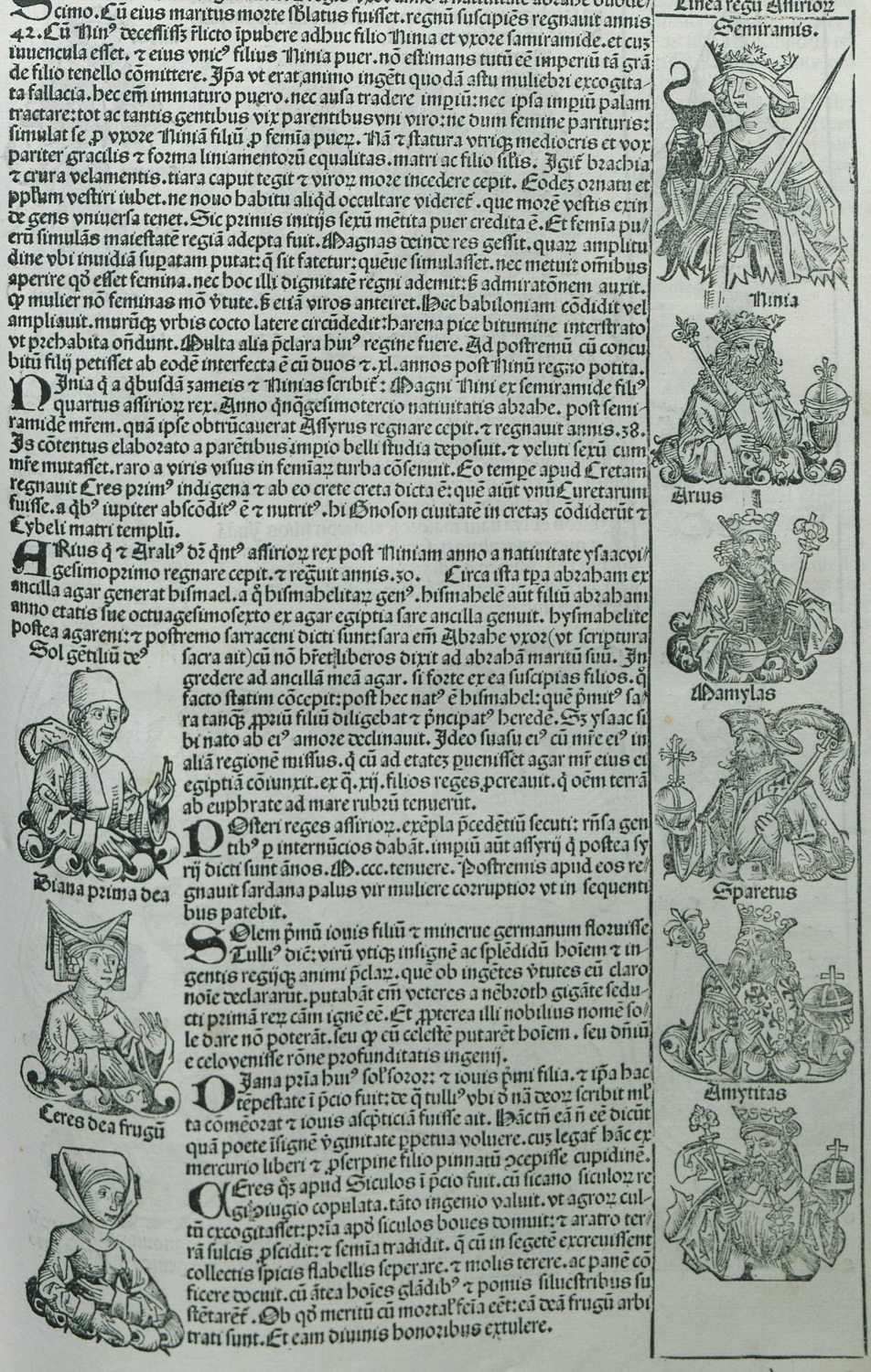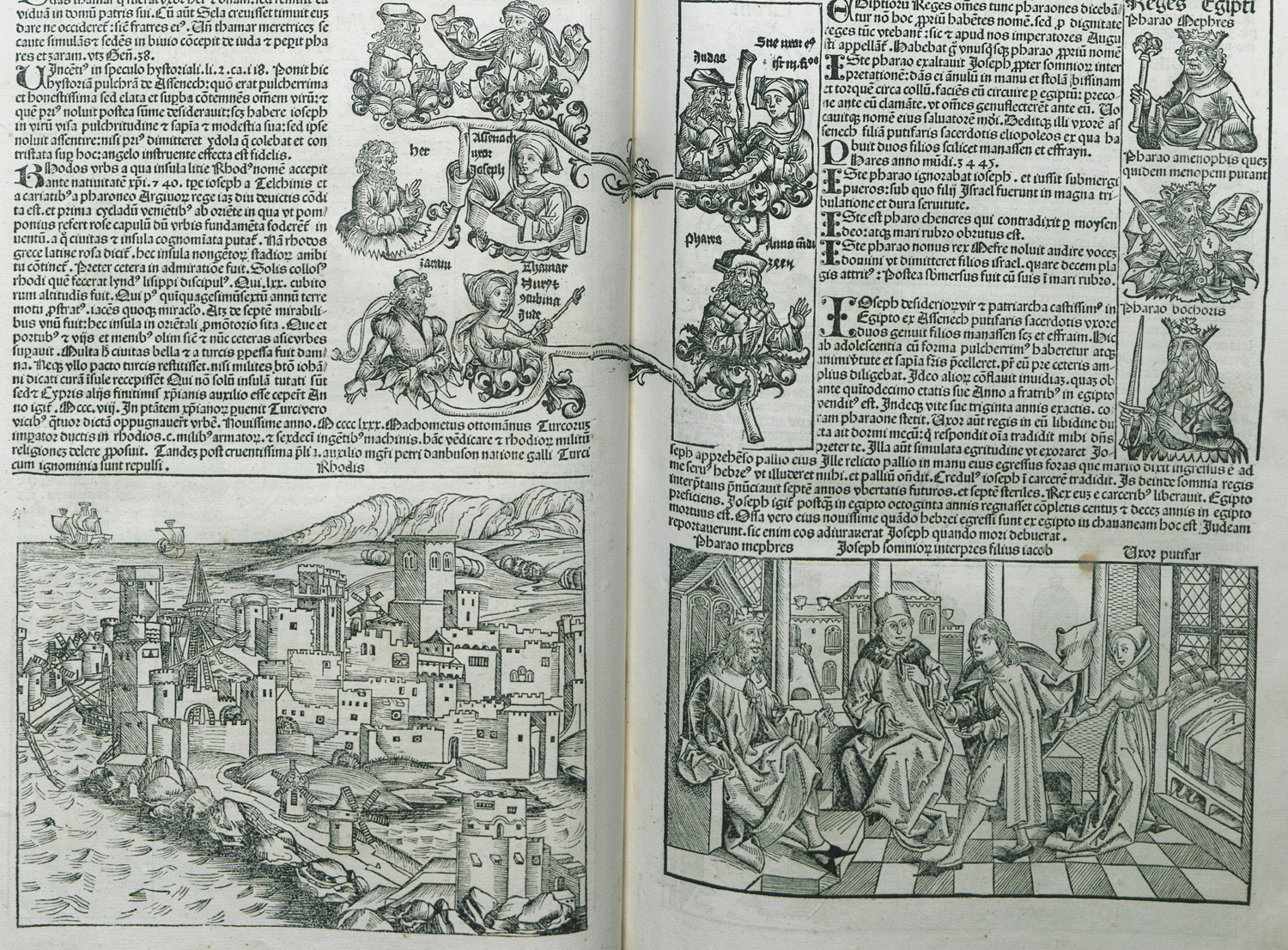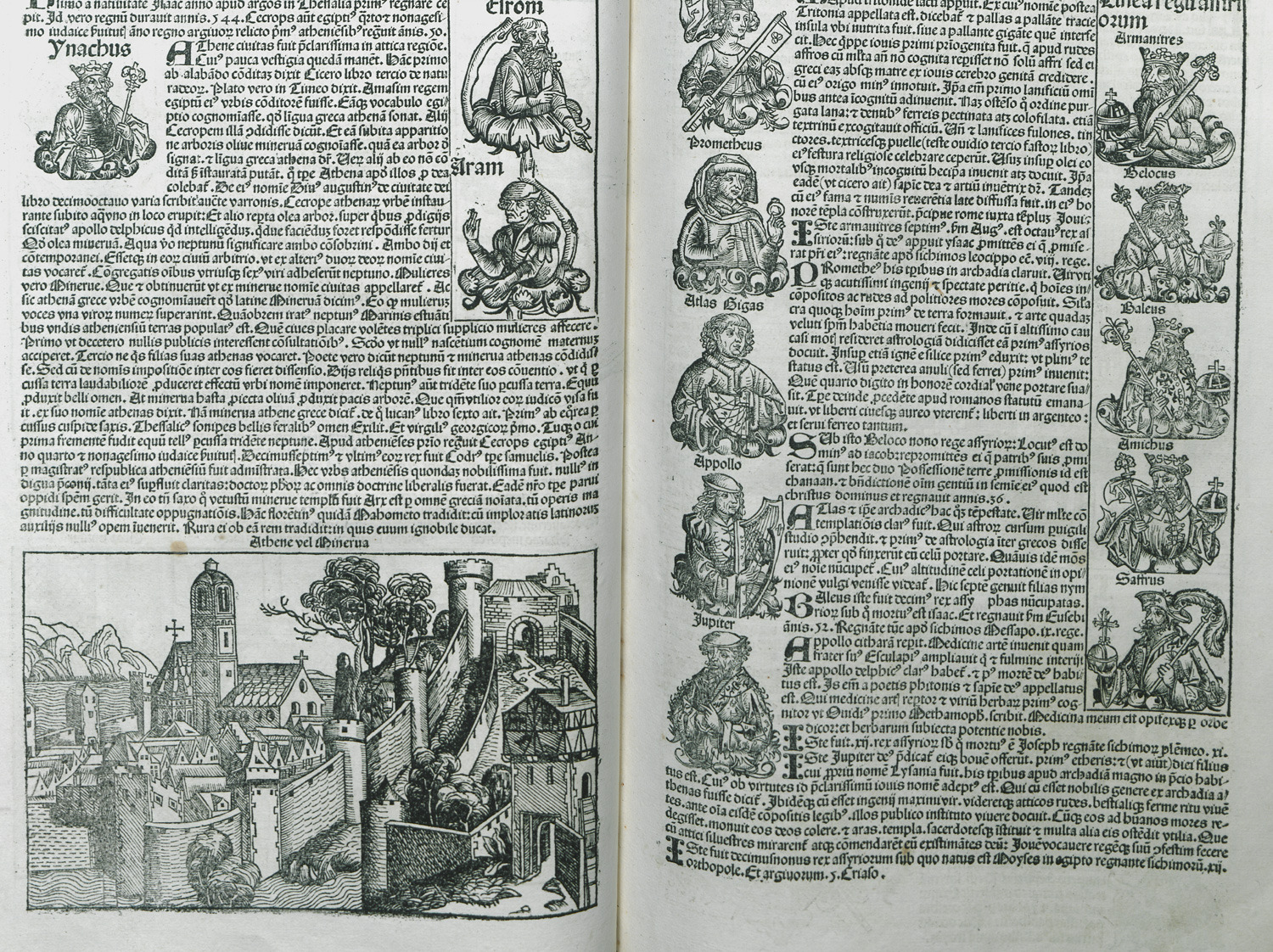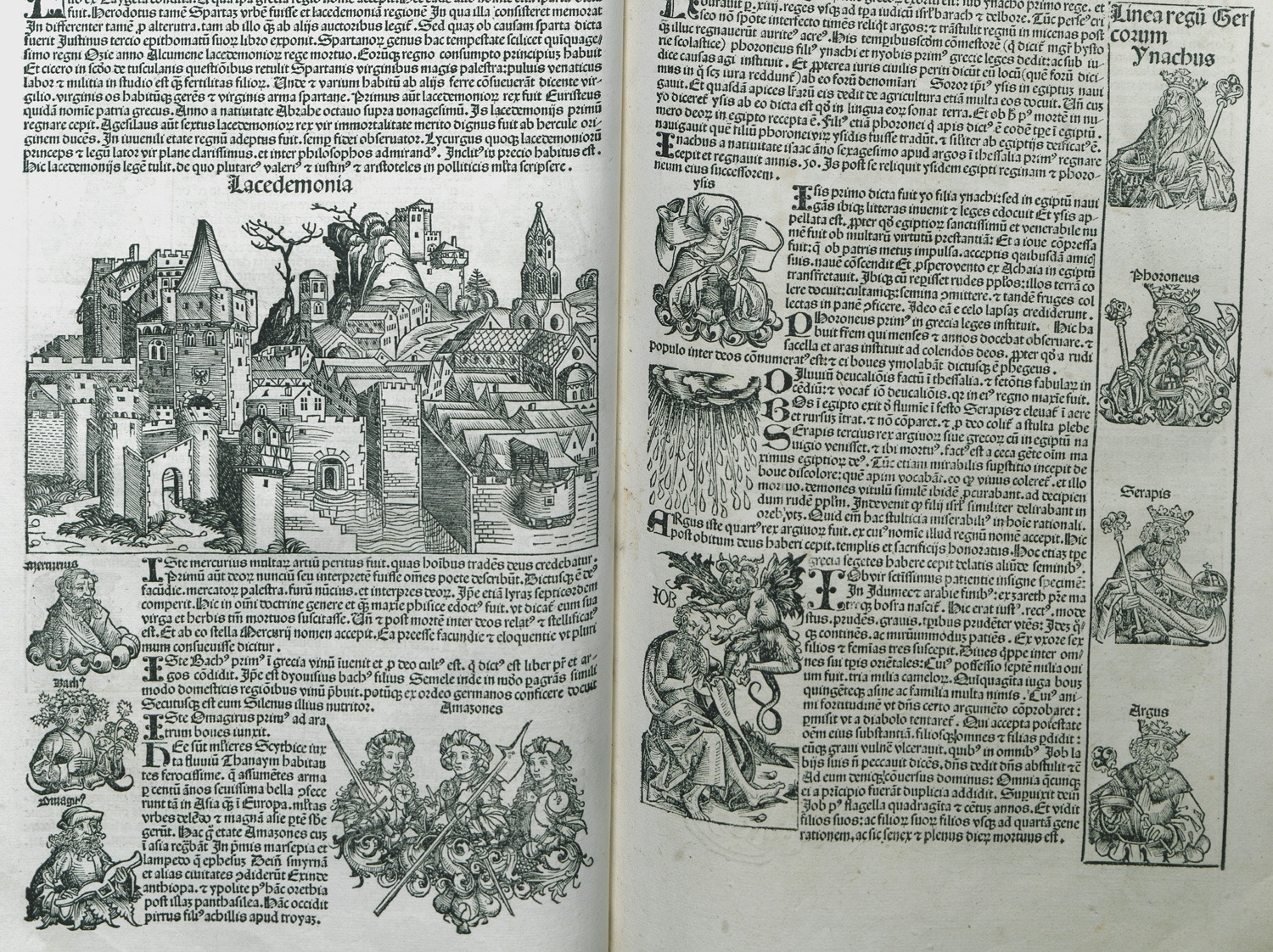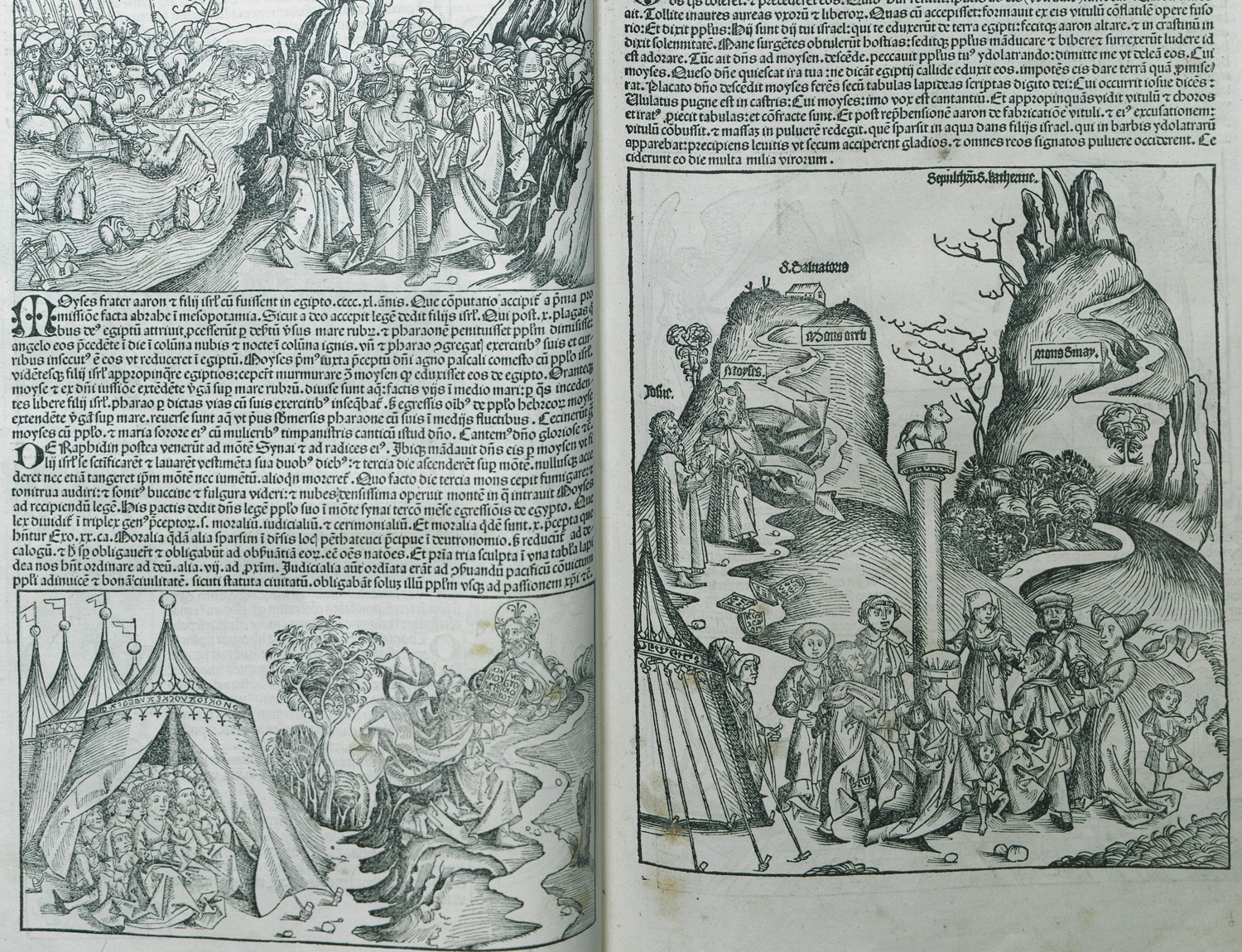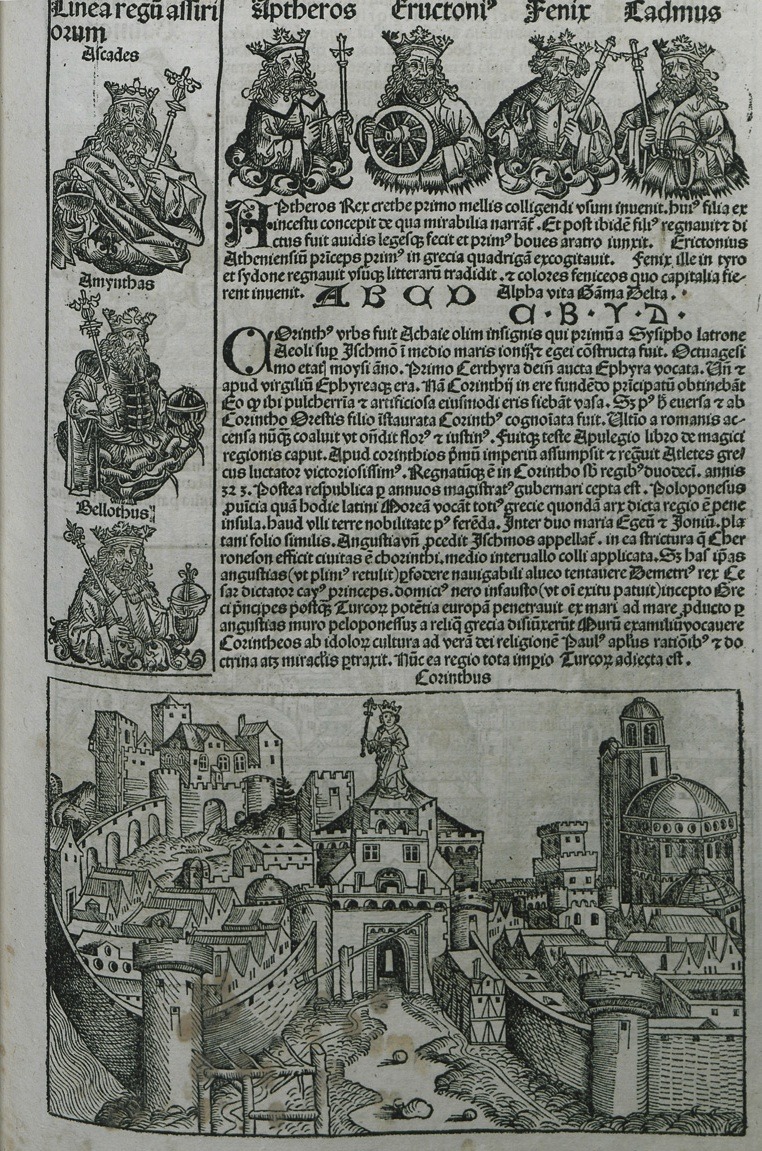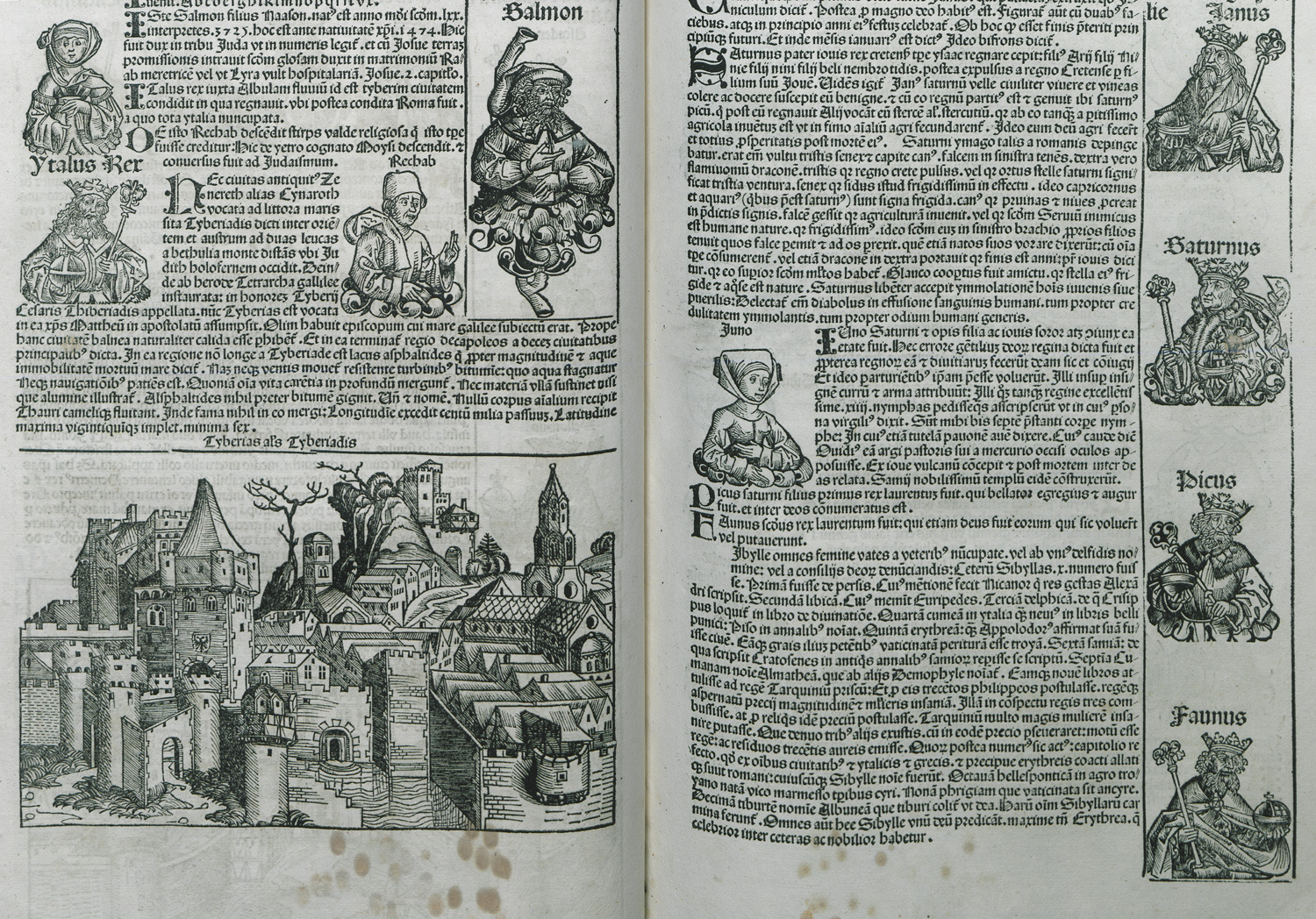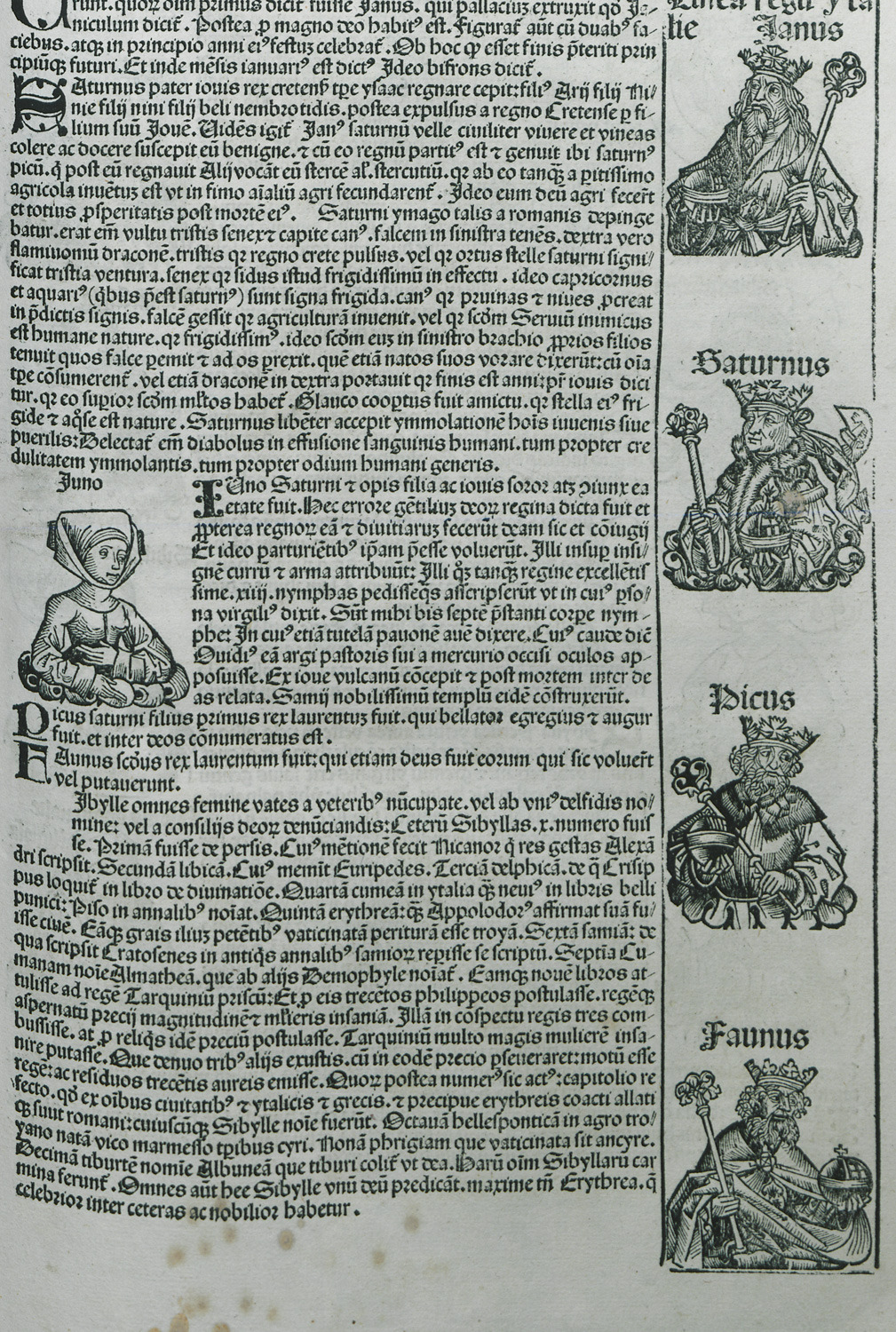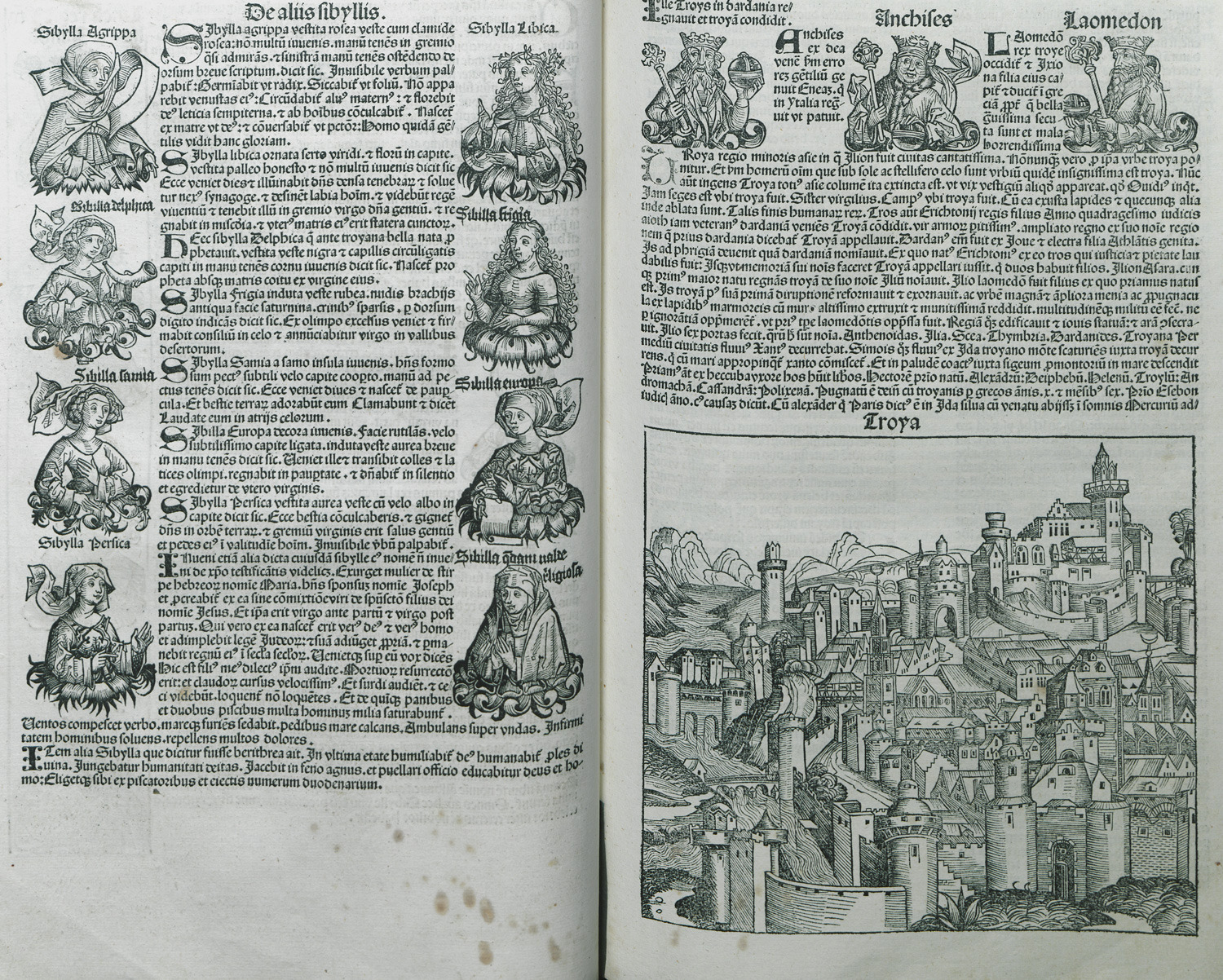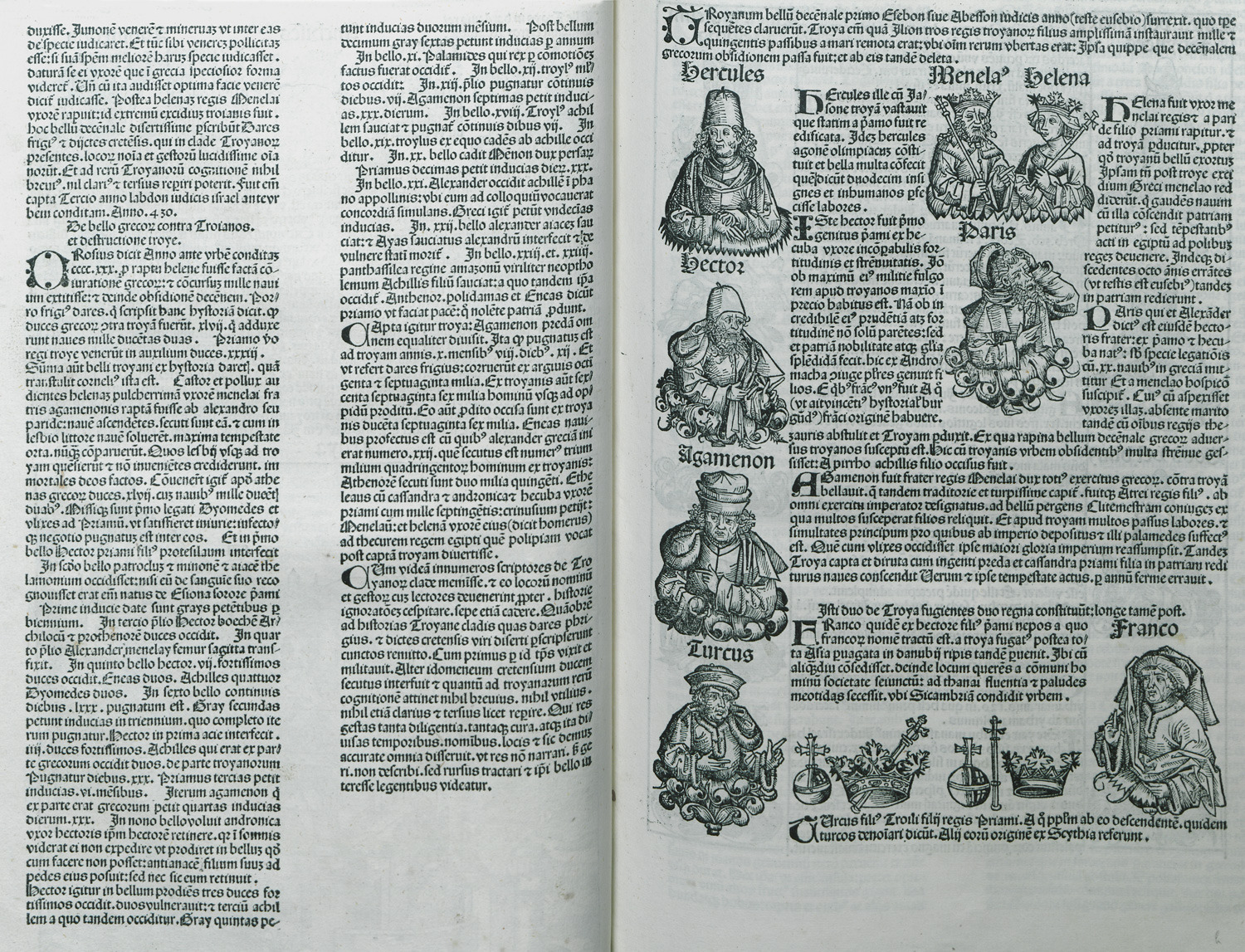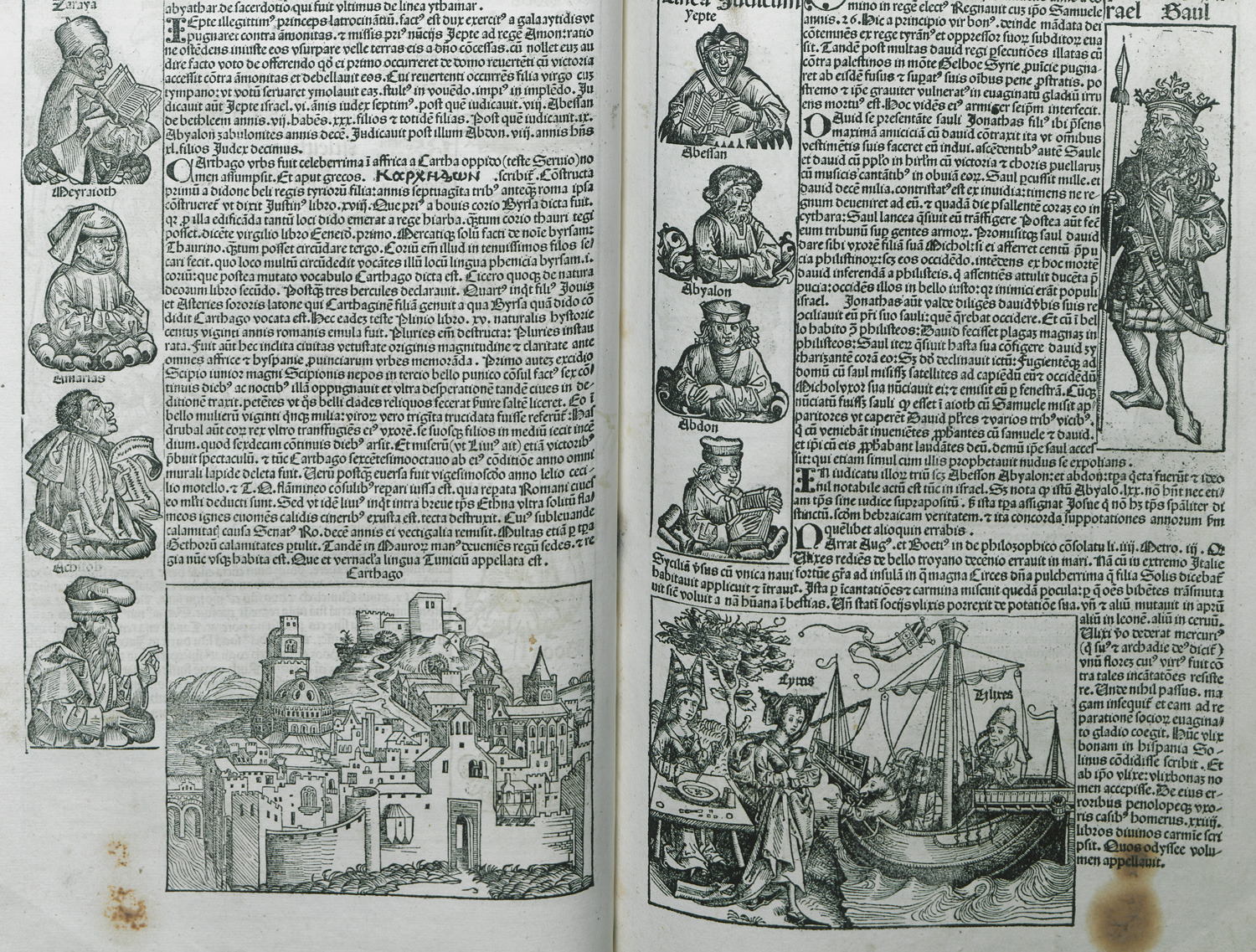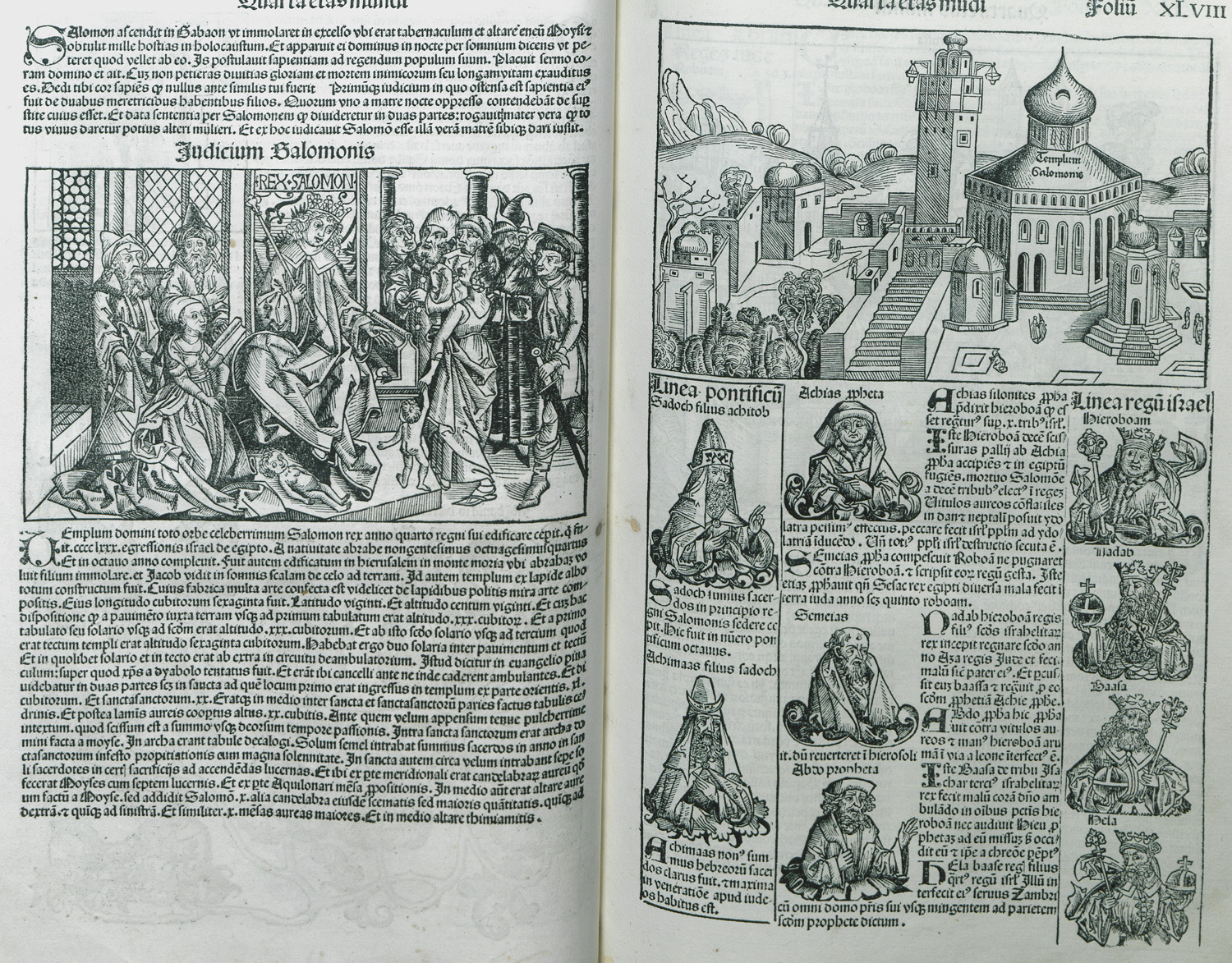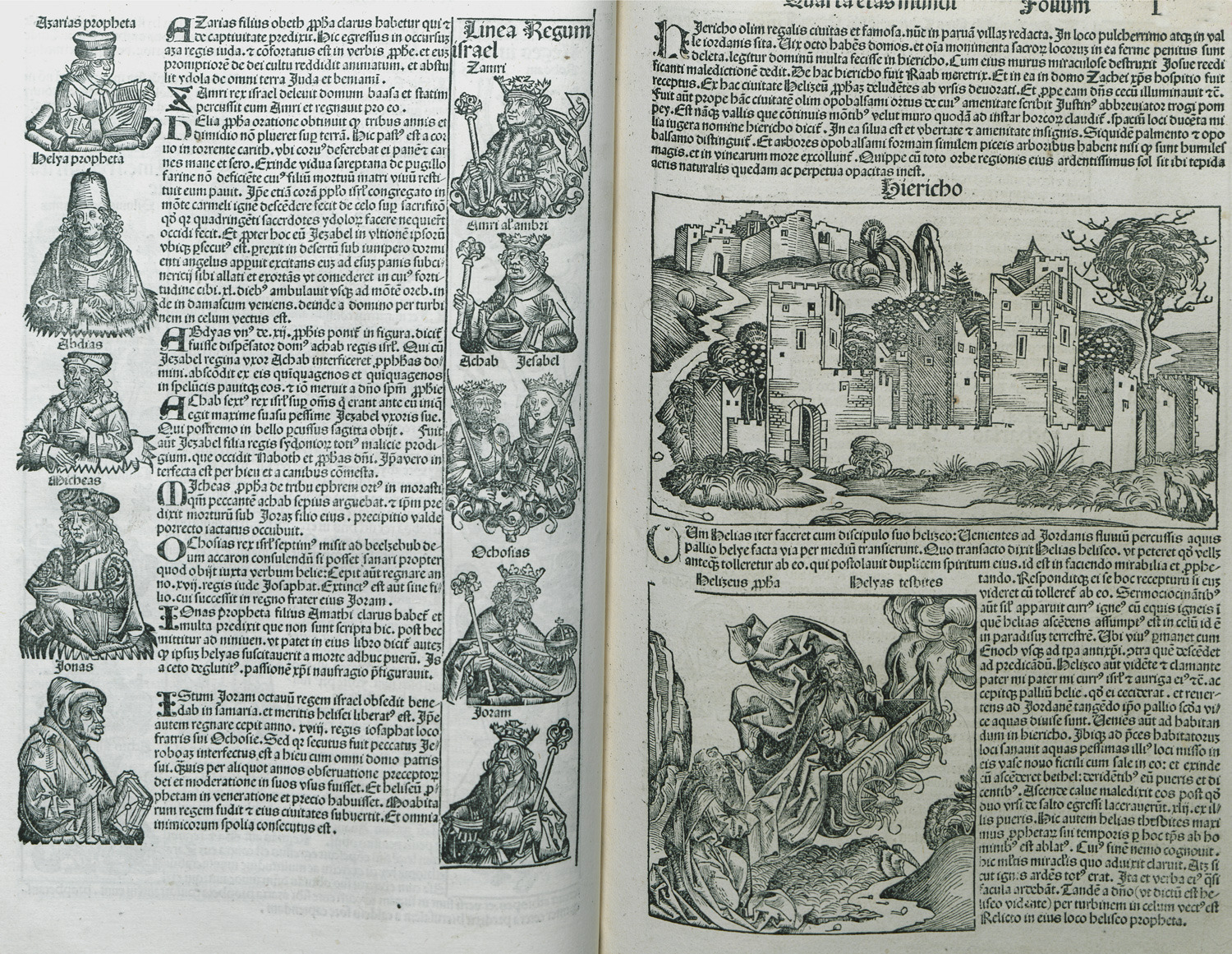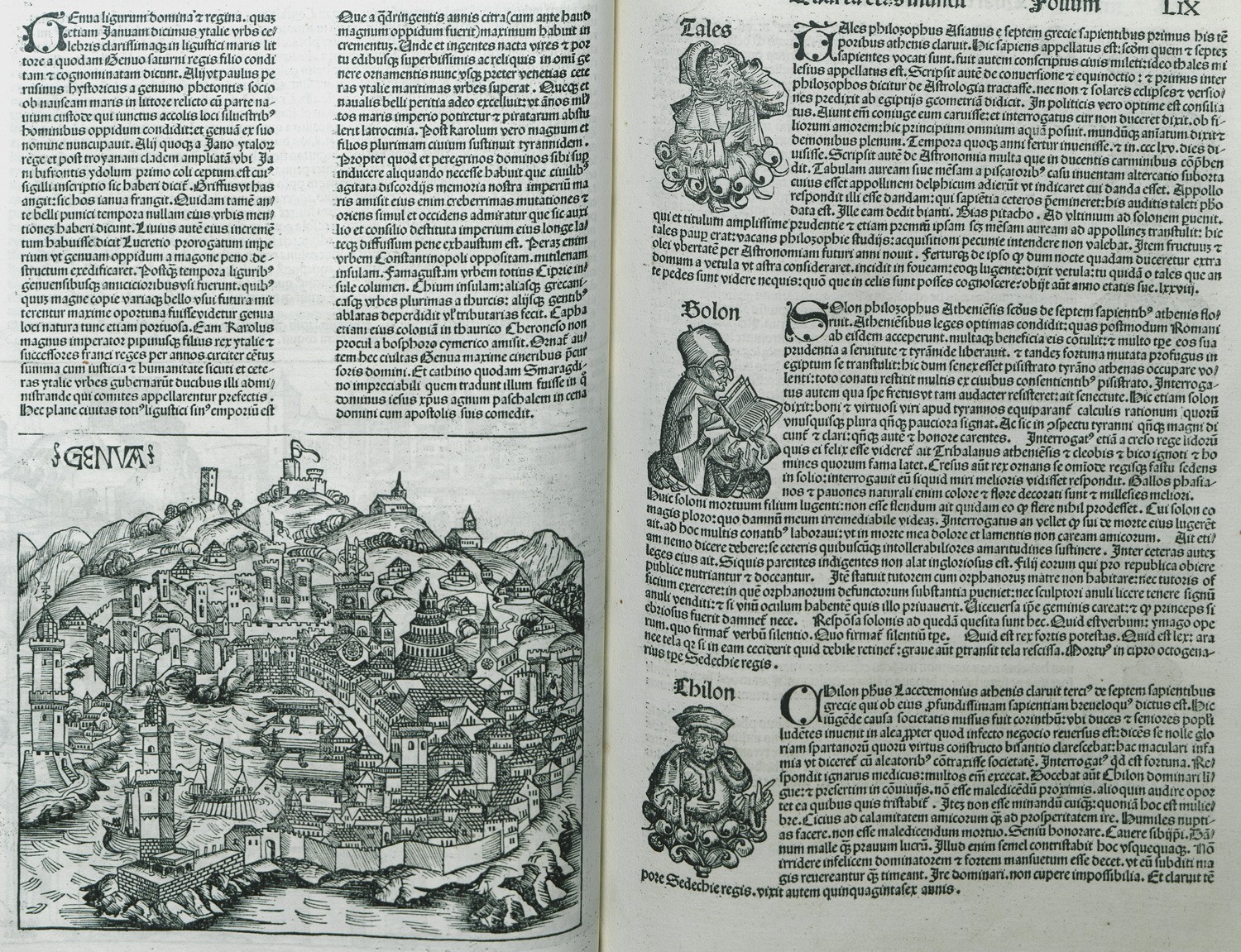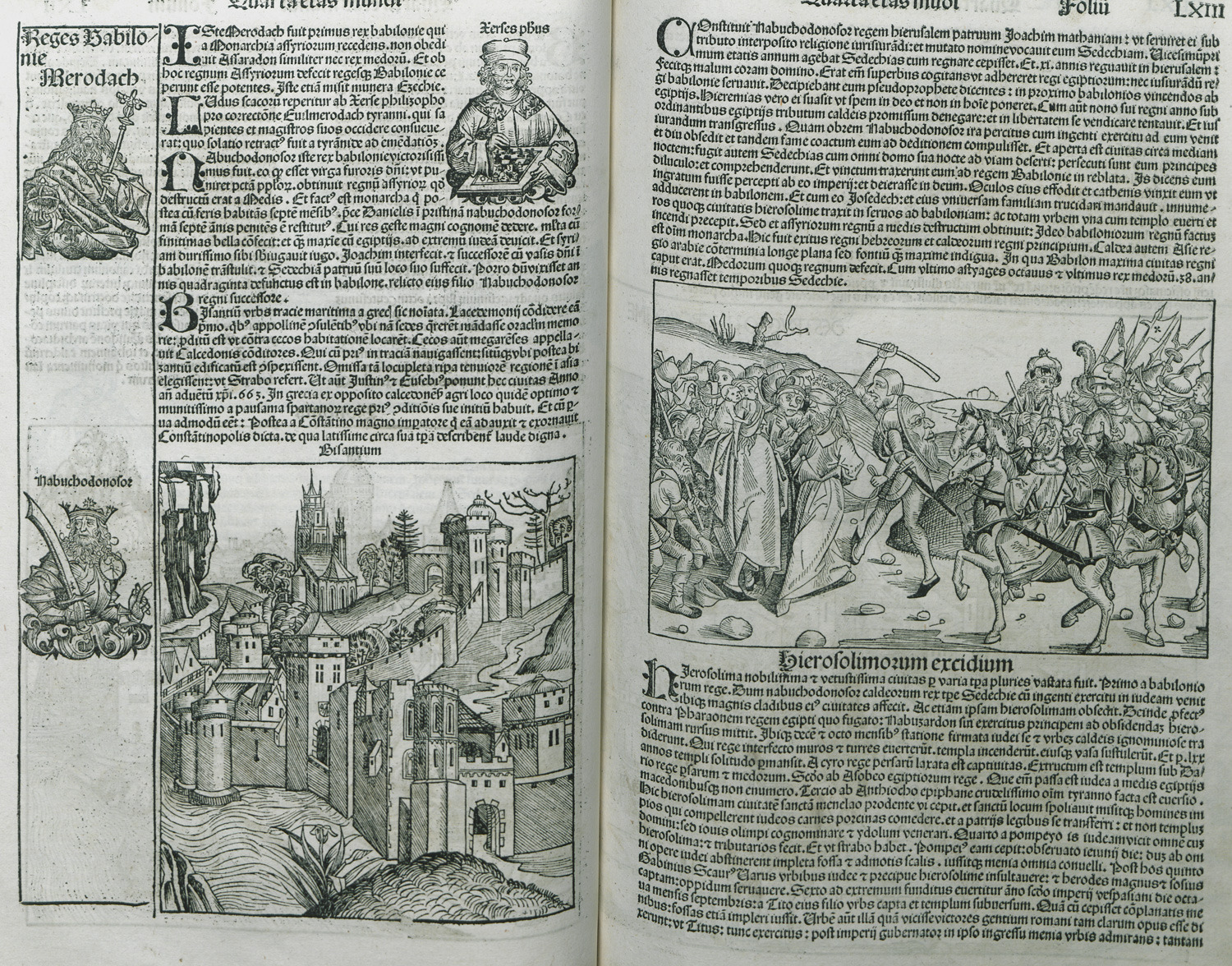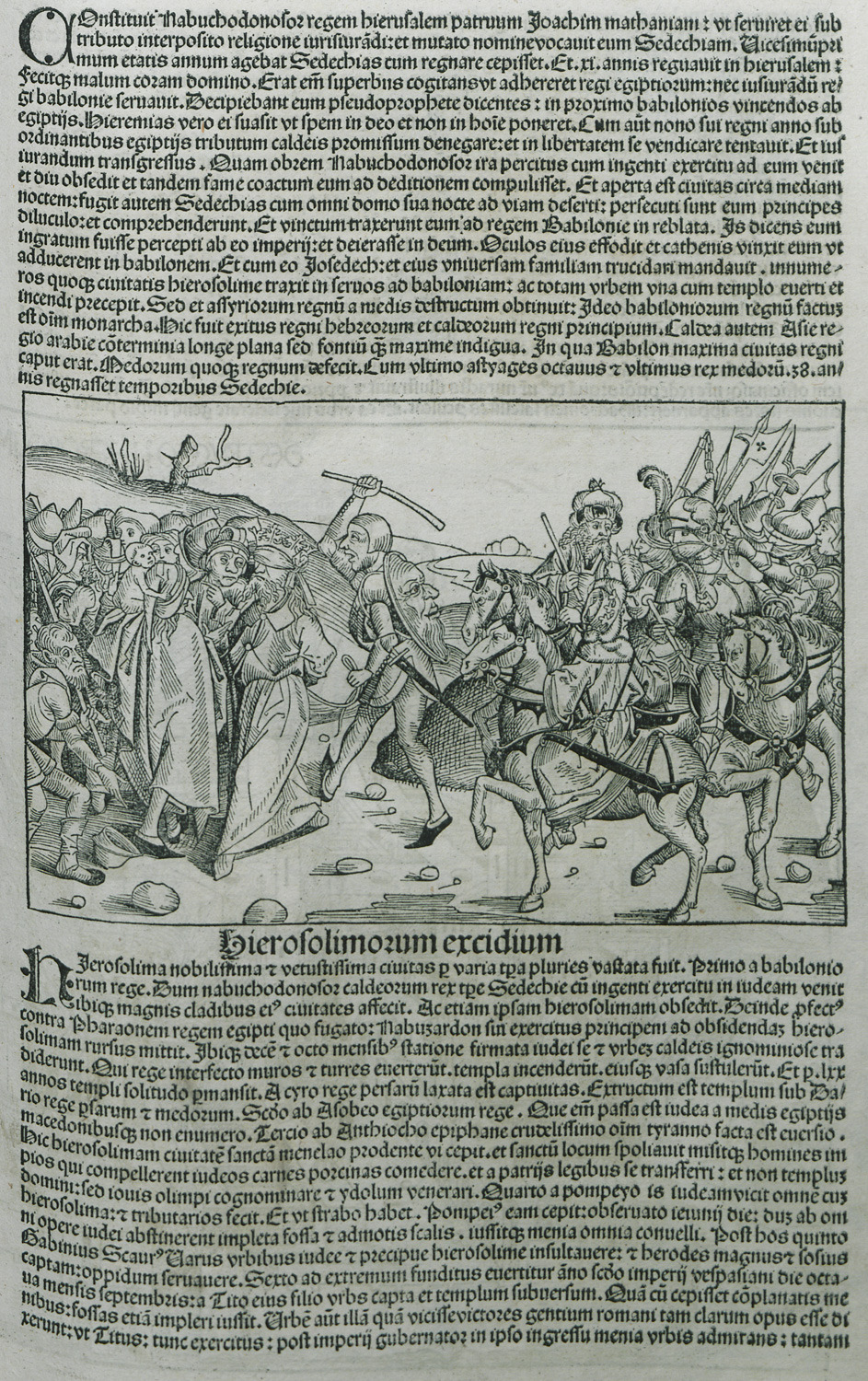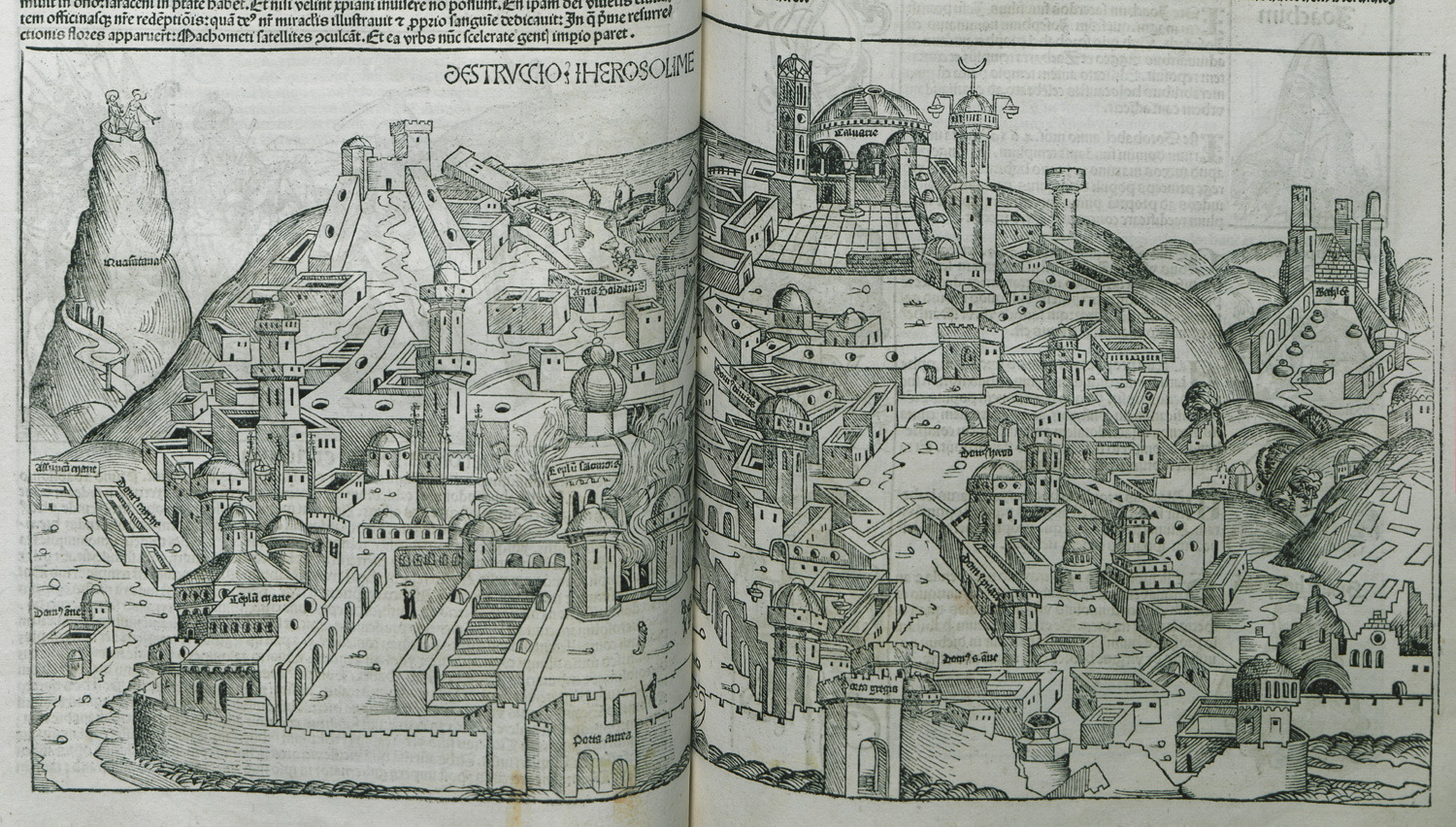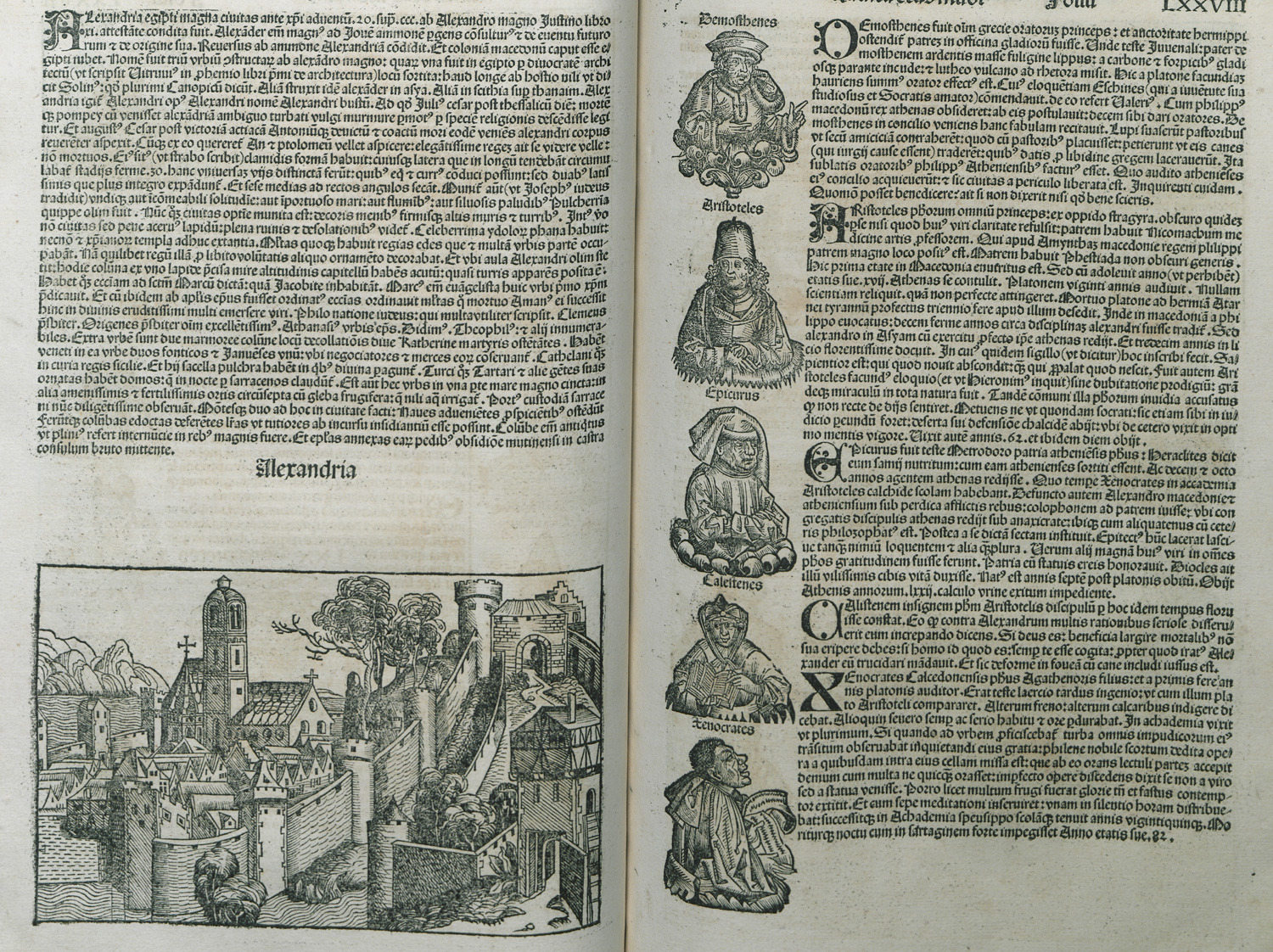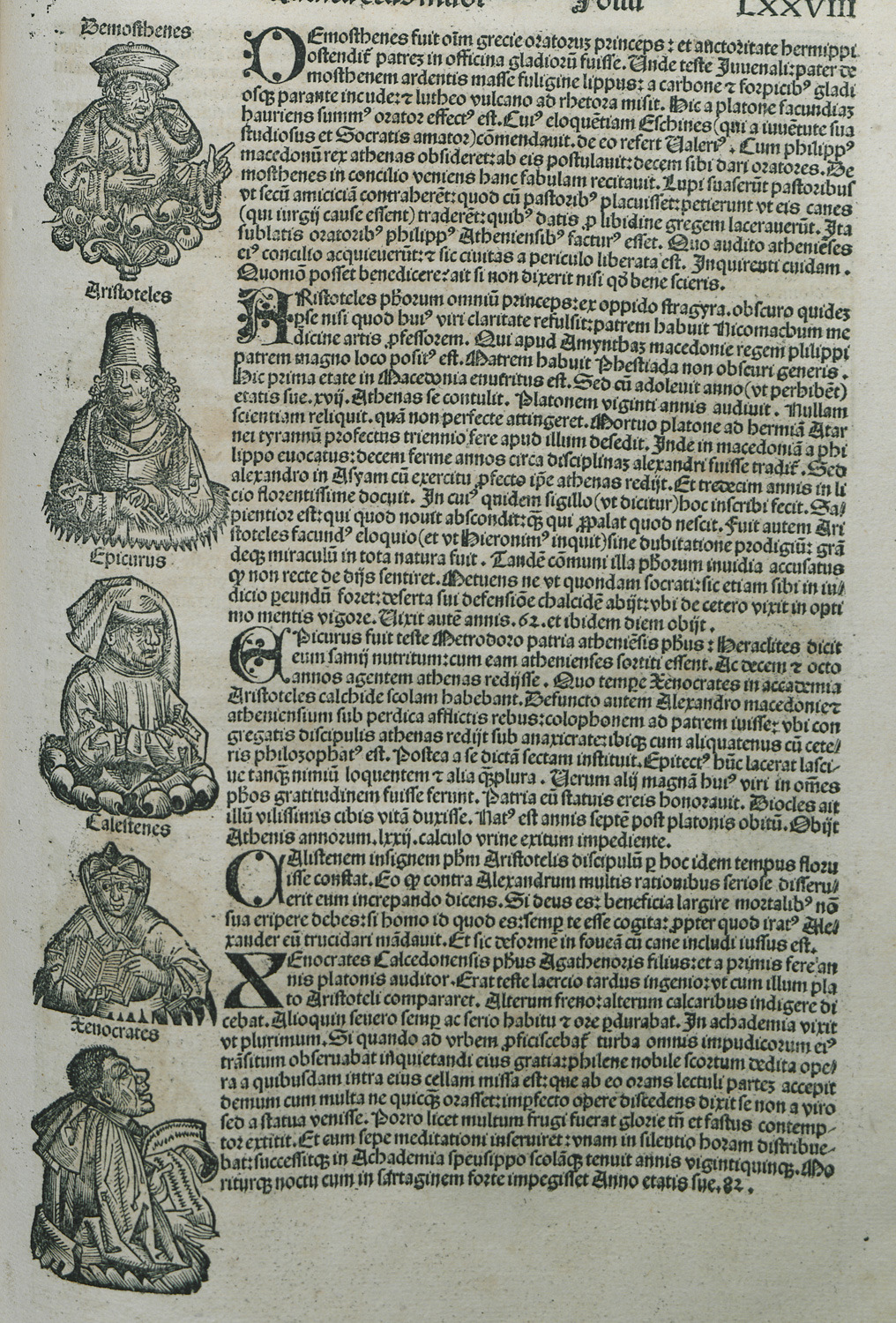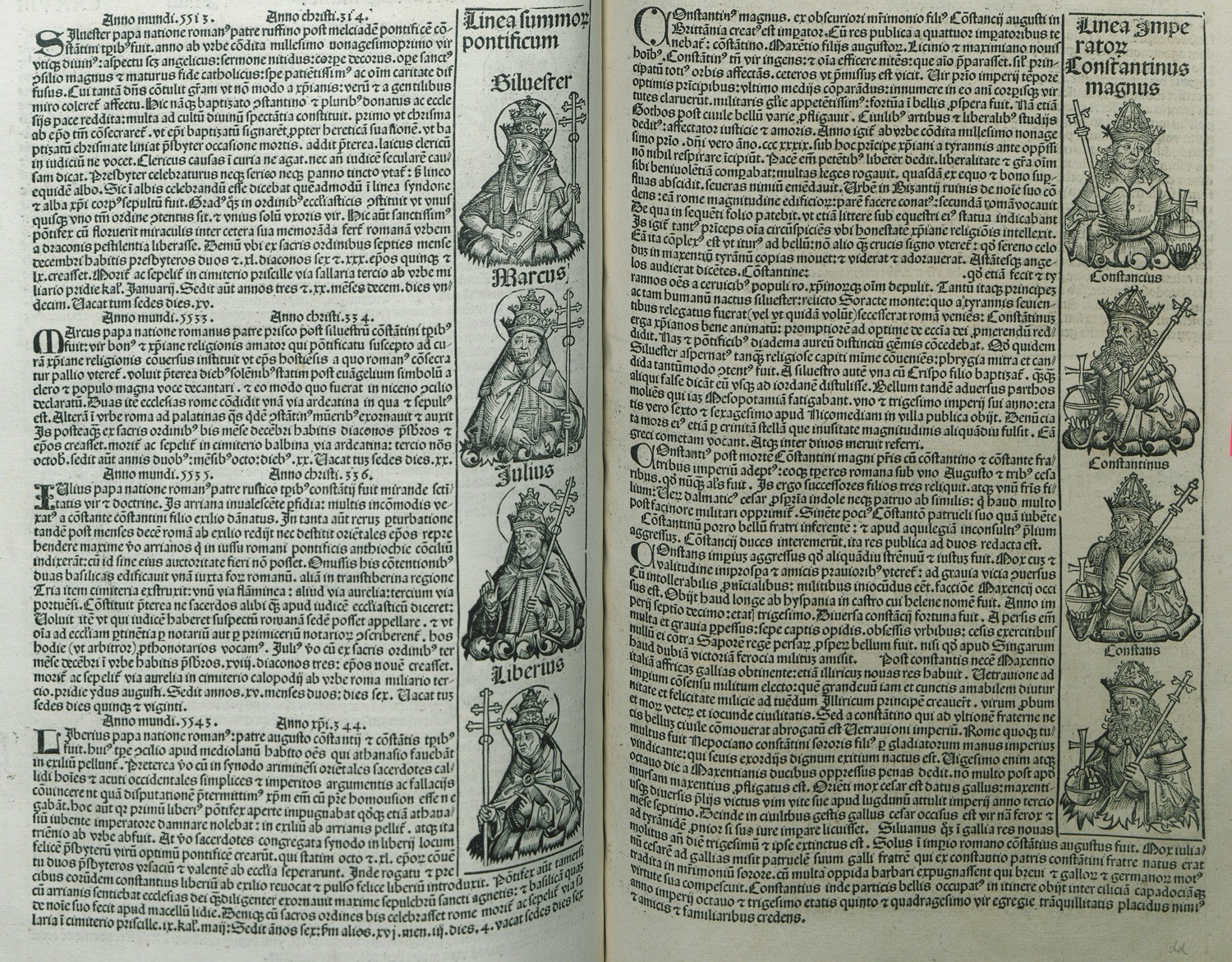Costume - Hats and headwear (4316 Subjects)
Street in Athens. In the background the Gate of Athena Archegetis (mod. Pazaroporta).
South view of the Temple of Artemis Agrotera in Agrae (Panagia stin Petra) in Athens. The figures represent the Vaiwode, or Turkish Governor of Athens, with some of its attendants on a hunting party.
The Horologion of Andronikos Kyrristos (Tower of the Winds) in Athens, with the Acropolis in the background.
Seikh Mustafa, chief of the order of Whirling Dervishes, who used the monument as their tekije (dervish lodge), is standing at the entrance of the monument, leaning on a staff, with his back turned.
In the foreground, a woman from an affluent family is promenading with her daughters and maidservant.
The library of Hadrian seen from the house of Nikolaos Logothetis, consul of Britain in Athens. In the foreground, the soap mills. An Ottoman aga receiving a visitor; an Albanian groom.
Coins of Athens. The sarcophagus of Boutos, priest of Athena and Poseidon, discovered in Erechtheion. Altar of Demeter and Persephone dedicated by Phavios, torch-bearer at the Eleusinian mysteries.
Northeast view of the Erechtheion.
View of the Erechtheion. Workmen excavating to reveal the base of the prostasis underneath the Caryatids. Ottoman official Dizdar Aǧa is leaning on his son-in-law's shoulder while two other Ottomans are supervising the excavations in order to keep him informed and to ensure that the British are not carrying away the archaeological findings. On the foreground a man, probably James Stuart, drawing the monument.
View of the Choregic Monument of Thrasyllus (Church of Panagia Spiliotissa). Mount Hymettus in the background; at its feet the church of Agios Georgios Alexandrinos. The domed building on the right is the church of Agia Paraskevi, and between the church and the rock stands the metochion of Agioi Asomatoi monastery. The people gathered are waiting for the priest who is going to perform the service at Panagia Spiliotissa.
View of the Propylaea of the Acropolis from the Temple of Athena Nike.
Ancient deities: Helios, Diana (Artemis), Ceres (Demeter). Genealogy of the Assyrian Kings: Semiramis, Queen of the Babylonians and her descendants. Babylon.
Ancient deities: Helios, Diana (Artemis), Ceres (Demeter). Genealogy of the Assyrian Kings: Semiramis, Queen of the Babylonians and her descendants.
View of Rhodes. Genealogy of Christ. Genealogy of the Pharaohs of Egypt. Joseph and Potiphar's wife.
Ancient kings and deities connected to Athens: Athena, Apollo, Prometheus, Zeus and others. View of Athens. Genealogy of the Assyrian kings. Genealogy of Christ (Aram, Esrom).
Amazons. Mythical kings of Argos (Inachus, Phoroneus, Abas etc.). Job and Satan. View of Sparta.
Crossing of the Red Sea. Moses receives the tablets of the Ten Commandments from God on Mount Sinai. Moses smashes the tablets as he sees the Israelites worshipping the Golden Calf.
View of Corinth. Genealogy of the Assyrian kings. Mythological figures (Cadmus, Phoenix etc.)
King Italus and Roman goddess Carmenta, here referred to as daughter of Evander. Genealogy of Christ: Salmon, Rahab etc.) View of Tiberias. Hera. Genealogy of the kings of Italy: Janus, Cronus, Picus and Faunus.
Hera. Genealogy of the kings of Italy: Janus, Cronus, Picus and Faunus.
Sibyls: Delphic, Libyan, Phrygian, Samian, European, Persian Sibyl and others. View of Troy. Tros, Anchises and Laomedon.
Heracles, Agamemnon, Hector. Menelaus, Helen and Paris. Turcus, son of Troilus and mythical ancestor of the Turks and his cousin Francus, descendant of Hector and mythical founder of rhe Merovingian dynasty.
Descendants of Aaron according to the book of Esdras. Carthage. Judges of Israel: Jephthah, Elon,
Abdon, Ibzan. Saul. Odysseus and Circe.
Solomon's Temple in Jerusalem. High priests of Israel.
Prophets of the Old Testament: Azariah, Elijah, Obadiah, Micah and Jonas. Kings of Israel: Zimri, Amri, Ahab, and Jezabel, Ahaziah, Joram. View of Jericho. Prophet Elijah ascends to heaven.
View of Genoa. Wise Men of Greece: Theles, Solo, Chilon.
Kings of Babylon: Mordecai, Nebuchadnezzar. Xerxes. View of Constantinople. Nebuchadnezzar conquers Jerusalem.
Nebuchadnezzar conquers Jerusalem.
Nebuchadnezzar destroys Jerusalem.
View of Alexandria. Philosophers and scholars of antiquity: Demosthenes, Aristoteles, Epicurus, Callisthenes, Xenocrates.
Philosophers and scholars of antiquity: Demosthenes, Aristoteles, Epicurus, Callisthenes, Xenocrates.
Popes: Saint Sylvester, Saint Mark, Saint Julius, Saint Liberius. Byzantine emperors: Constantine the Great, Constantius, Constantine II and Constans.


